


•
•
•
•
•


































•
•
•
•
•






























Chairman of the Board - Allyson Padilla allyson@blanksinsurance.com
President - Patrick Taphorn, CIC, CSRM ptaphorn@unland.com
President-Elect - Thomas Evans, Jr. tom.evans@assuredpartners.com
Vice President - Chris Leming cleming@troxellins.com
Secretary/Treasurer - Cindy Jackman, CIC, CISR cjackman@arlingtonroe.com
IIABA National Director - George Daly george.daly@thehortongroup.com
Mohammed Ali - mali@aliminsurance.com
Charles Hruska, IV - chas@hruskains.com
David Jenk, Esq. - djenk@nwibrokers.com
Rebecca Kohn - rkohn@worthyinsurance.com
Lindsey Polzin - lpolzin@presidiogrp.com
Ray Roentz - ray.roentz@hwcrins.com
Noele Tatlock - ntatlock@unland.com
Luis Tayahua - lt@goldenowlinsurance.com
Sharon Waldvogel - sharon@infinitybrokersinc.com
Andrea Wallace - andrea@aadins.com
Amiri Curry - acurry@assuranceagency.com
Kevin Lesch - klesch09@gmail.com
Jeff McMillan - jeff@mcmillanins.com
James Sager - james@sagerins.com
Luke Sandrock, CIC - lsandrock@2cornerstone.com
Budget & Finance | Cindy Jackman, CIC, CISR cjackman@arlingtonroe.com
Education | Lisa Lukens salibainsurance@gmail.com
Farm Agents Council | Steve Foster s.foster@ciagonline.com
Government Relations | Dustin Peterson dustin@peterson.insurance
Planning & Coordination | Nick Gunn, CIC ngunn@envisionins.com
Technology | Brian Ogden brian@ogdeninsurance.com
Young Agents | Cody Imming cody@imminginsurance.com
Follow us on socials.

Insurance Products Administrator
Director of Information and Technology
Director of Education and Agency Resources
Accounting & Admin Services
Director of Human Resources, Board Admin
Sr. Vice President/Chief Financial Officer
Chief
Director
Office
Rebecca Buchanan (217) 321-3010 - rbuchanan@ilbigi.org
Shannon Churchill (217) 321-3004 - schurchill@ilbigi.org
Brett Gerger, CIC (217) 321-3006 - bgerger@ilbigi.org
Tami Hubbell, CIC (217) 321-3016 - thubbell@ilbigi.org
Jennifer Jacobs, SHRM-CP (217) 321-3013 - jjacobs@ilbigi.org
Mark Kuchar (217) 321-3015 - mkuchar@ilbigi.org
Phil Lackman, IOM (217) 321-3005 - plackman@ilbigi.org
Lori Mahorney, CISR Elite (217) 415-7550 - lmahorney@ilbigi.org
Evan Manning (217) 321-3002 - emanning@ilbigi.org
Kristi Osmond, CISR Elite (217) 321-3007 - kosmond@ilbigi.org
Rachel Romines (217) 321-3024 - rromines@ilbigi.org
Tom Ross, CRIS, CPIA (217) 321-3003 - tross@ilbigi.org
Carol Wilson, CPIA (217) 321-3011 - cwilson@ilbigi.org


Have confidence knowing that Grinnell Mutual will provide coverage for what’s important to your customers. We offer the comprehensive insurance they need to protect them from the unexpected. Trust in Tomorrow.® Talk to us today.


The “Brain Drain” is real in all aspects of our industry, from regulations to carriers to our agencies. Many are reaching retirement and leadership styles are evolving. One thing remains a constant, and that is knowledge is power. The more you know about any given subject, the more valuable you become to whatever organization you work for. Too often, this next generation moves from one job to another without ever becoming valuable as a resource. They are a “jack of all trades but a master of none.” Many leave for more money, a fancier title, or even the mere fact that they do not respond well to the type of leadership provided. It is hard for a very young 53-year-old to connect with a 22-year-old fresh out of college due to the fact that what motivates the 53-year-old doesn’t necessarily work for the 22-year-old. I know my articles always circle back around to education but that’s what I do. So, as our workforce churns, we need to be able to pivot our educational needs and desires.

Our new employees need to be educated on our industry, products, coverages, and nuances of all aspects of the insurance world. Whether it be obtaining designations or learning pivotal sales techniques, new employees need to be able to see the value in these early educational components in order for them to become life-long learners, making them extremely valuable to management as well as their stakeholders. Without the refilling of the “Brain Drain,” it will become extremely difficult to train these individuals to become our future assets and/or leaders. Education sets the foundations for all things to be built on. For example, you buy a building and do the bare minimum maintenance, if that, and 20 years down the road you wonder why your building is a piece of excrement. The building will crumble fairly easy if it has a shoddy foundation. Had you not only kept up with the maintenance, but also stayed ahead in the innovation space as well as modernizing the building, you would not be in the position of starting all over. If you do more than just upkeep, your time and effort could go into other things besides starting over from scratch. I always say hiring the right talent is the key to success. Educational commitment is a culture thing and the culture of an organization, carrier or agency, can make or break an organization.
Now that we know to train your people, we have to work on you and your journey in the leadership aspect. A common misnomer is that the leader of every organization is the CEO (no disrespect to Phil, as he is our leader. (Good save there). A person can claim to be a leader of a journey, but if they look back and no one is following them, then they are just on a walk. Leadership is a trait/quality that draws people to believe in and follow them to achieve a common goal. Many studies have shown that leadership is not a trait but can be learned. I agree, and I disagree with this. People way smarter than I have come to this conclusion. I would contend to be a transformational leader (the best thing) that is successful you must have the proper training and the “IT” factor. While leadership skills typically have not changed over the years, the manner in which they are carried out is greatly different. Some of the major tenets of leadership (communication, analytics, adaptability, resilience, authenticity, etc…) are the same while we have transformed or added new skills to the mix (empathy, creativity, curiosity, etc…). While the concepts may be old, what they mean or how they are carried out are different. Communication in the 1970s has a way different meaning than the way that we communicate in today’s business environment. The starkness between those two eras
is only amplified in how different it is to be a successful and transformative leader in today’s world. If you try to lead today by utilizing old leadership concepts, you will find that after a while you are merely walking alone when you look back. Leading by example and



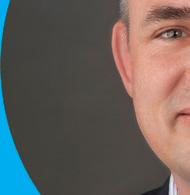






being authentic are two amazing leadership characteristics that will always hold true. They are the toughest to do and you must remember that every individual in your organization will lead something or someone at some point. As a leader, do not sell yourself or your organization short by not keeping up with the latest leadership techniques, which will show the people following you that you are authentic and you practice what you preach. Absorb everything you can about various leadership techniques and see what works best for you and your skill set. Even transformational leaders who do not work on their skills and craft will find that the outcomes don’t meet their vision, as natural ability and education must be combined to be a success. Who knows someone who has an overabundance of natural talent but always falls short due to their inability to put in the extra work? Success and leadership are tethered to each other. It is hard to have one without the other. While you may be an effective leader and not win all the time, your outcomes will have much greater success or much less severe failure than you would have had without effective leadership. Just like you may have great success without effective leadership, but I would contend that the success would have been much greater with effective leadership. The old “a blind squirrel can find a nut” saying. For that example I would contend that the squirrel has good leadership skills in that it doesn’t remember where it buries the nuts but buries so many that it can dig anywhere and find a nut. Part of leadership is identifying your agency’s weaknesses and nullifying them in order to achieve your goals. The squirrels have figured out a work around to their weakness (memory).
Two takeaways from this article are to educate your staff and yourself, and commit to becoming an effective leader while leading your staff to become effective leaders, as well. Imagine you are shark. While in the business world, if you stop swimming (failing to continually learn) you will die(fail). Commit yourself to becoming a better leader, and I bet if you look behind you in 6 months to a year, there will be a whole slew of people behind you unless you are John Blutarsky. To answer his age-old question… it was not over when the Germans bombed Pearl Harbor.
As always, this is just Brett’s 5 Sense (who are we kidding, this is probably the new normal) and I hope it was helpful. You can contact me through my CONNECT and if it is urgent, do not hesitate to reach me through CONNECT. I may be pushing you to CONNECT. If you need any clarification or have any suggestions for future articles please email me at bgerger@ilbigi.org.






We’re better together.
Keystone is a network of high-performing independent insurance agencies. Together with Keystone Agency Partners, we can help your agency unlock its full potential with combined experience that fuels growth. Regardless of where you are in your agency journey – just starting out, maturing, or planning to perpetuate, we provide support and guidance while respecting your independence.
This combination is the “secret sauce” that makes it work. Here are just a few ingredients.
Conferences: From marketing strategy to prospecting, developing a niche, to learning how to navigate the age of remote work, we’ve covered it. Our agents serve on panels to discuss what’s working, and not. Combined with our services and mentorship, our agents walk away with the tools and tactics they need to implement strategies that succeed.
Our board of directors is made up of Keystone agents, who we call partners. They influence our direction, services, and offerings to fellow agents. We honor inclusion and perspective – everyone plays a part in where we are headed into the future.
From data and analytics to carrier relations, sales training, and revenue generating solutions, each of our staff brings specialized expertise. With it, Keystone partners can give themselves a raise with new business, benchmark against successful peers, and find solutions to meet recruitment and retention challenges.
“Keystone improves the bottom line for independent agencies with strong, in-house resources and a support network that supports intellectual capital sharing. Agencies retain their identity while benefiting from the collective strength of our community. The result is improved access, relationships, and results for our agents and their clients.”
– Matt Fink, State VP for Illinois


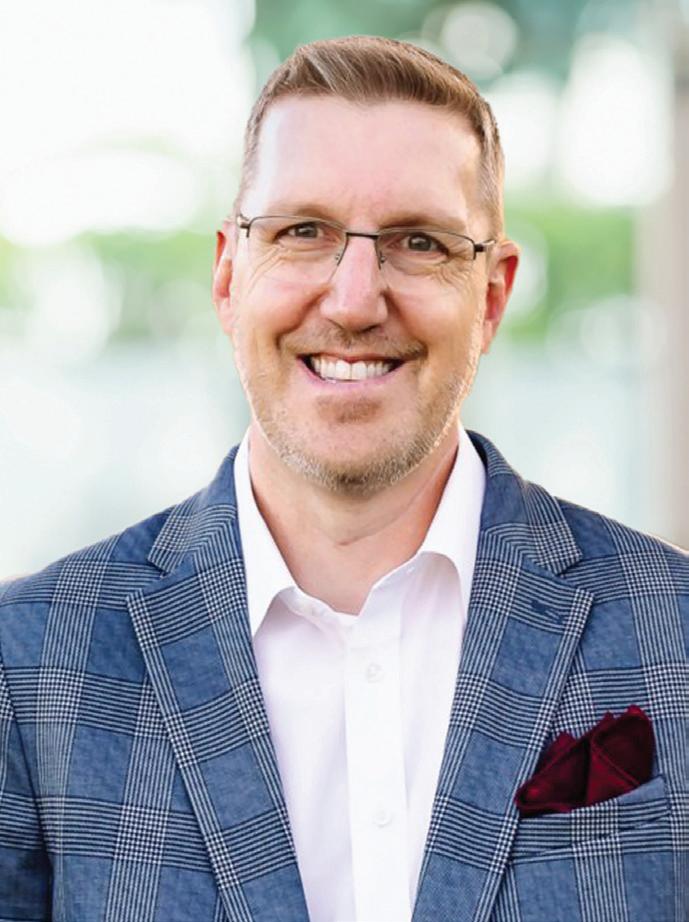
The objectives of the Association shall be to maintain a high standard of integrity and to promote harmony in the insurance business in Illinois; to adopt and enforce such rules as the interest of the public, insurance business and membership may require; to interpret the needs of the insurance public to insurance companies; to sponsor high qualifications for those engaged in the insurance business; to represent the interests of the members before governmental, regulatory and legislative bodies; and to do all things necessary toward the betterment of the profession of the members and the service of their business needs.
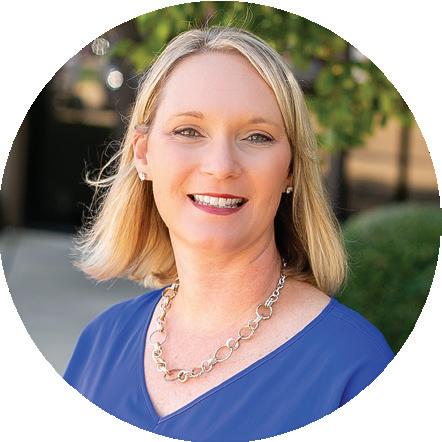
Allyson Padilla was born into Blank’s Insurance Agency but began her insurance career full-time in 2008. The agency provides all types of insurance and bonds, including personal lines and commercial insurance. She works in all facets of the agency but is primarily focused on commercial lines, agency marketing, and advertising.
Blank’s Insurance Agency 515 S. Whittle Ave. - PO Box 69, Olney, IL 62450 (618) 393-2195 allyson@blanksinsurance.com
Family: Spouse: Angel Sons: Angel Julian, Bennett & Cruz
Pat Taphorn was hired out of college in 1989 with Unland Insurance & Benefits in an Accounting and Operations position and moved into a sales role in 1994. He took over as President in January of 2016 and still has agent responsibilities, along with overseeing all six agency locations. Unland Insurance & Benefits provides P&C, Life, Health & Employee Benefits and Financial Services.
Unland Insurance & Benefits 2211 Broadway Road, Pekin, IL 61554 (309) 347-2177 ptaphorn@unland.com
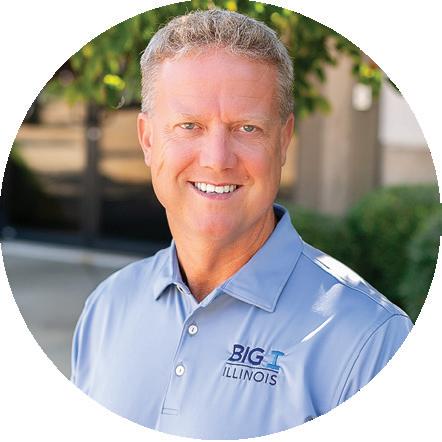
Family: Spouse: Lisa Children: Nathan, Carter, Jenna, & Justin
Thomas Evans, Jr. has been in the insurance industry since 1996 starting out at Insure One. He then moved to Esser Hayes Insurance Group, and Crum-Halsted Agency before joining Biglow & Company, Inc. (Assured Partners).
Biglow & Company, Inc. (Assured Partners) 11 Nippersink Blvd, Fox Lake, IL 60020 (847) 587-2155 tom.evans@assuredpartners.com
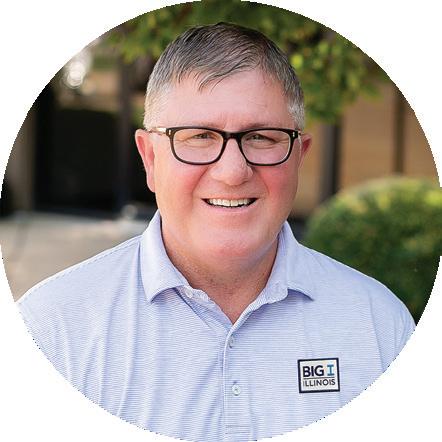

Family:
Spouse: Rebecca
Daughters: Ashley & Aly
Sons: Tommy (III) & Tyler
Christopher Leming embarked on his insurance journey in 1997. He is currently serving as Senior Vice President at TROXELL, where he offers a full spectrum of services, including Personal and Business Insurance, Group Benefits, Surety Bonds, HR and Safety Solutions, and Individual Health and Life insurance. Beyond his professional expertise, Chris is deeply passionate about the politics and advocacy within the industry, dedicating himself to ensuring that agents in Illinois are effectively represented and their interests championed.
Troxell
214 S Grand Ave W, Springfield, IL 62708 (217) 321-3185 cleming@troxellins.com
Family:
Spouse: Margaret
Son: Christopher Daughters: Annaliese & Mallory
George Daly entered the insurance industry in 1984, working with Allstate and Insure One before joining The Horton Group in 2005, where he’s President of the Personal Insurance Division. The Horton Group started in 1971 and is one of the top 50 largest insurance agencies in the country. Effective August 1, 2024, The Horton Group merged with Marsh McLennan Agency LLC.
The Horton Group, Inc. 10320 Orland Pkwy, Orland Park, IL 60467 (708) 845-3311 george.daly@thehortongroup.com

Family:
Spouse: Margie
Daughters: Katie and Erin Son: George
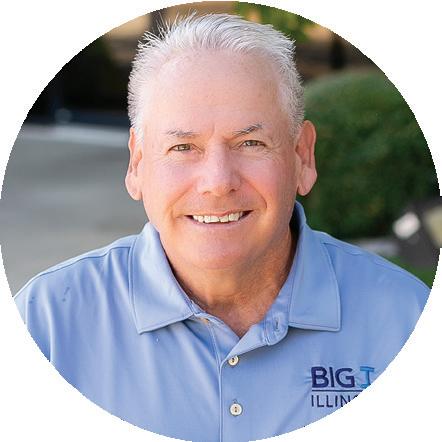
Cindy Jackman began her career in 1984. After 34 years on the retail agency side, she joined Arlington/Roe and is now the Regional Sales Director for Illinois and Missouri. Cindy has served Big I Illinois in some capacity since the late 1980’s and enjoys helping the independent agents enhance and grow their agencies.
Arlington/Roe PO Box 2614, Carbondale, IL 62902 (618) 201-1265 cjackman@arlingtonroe.com
Family:
Spouse: Jon
Children: Kristin (Ryan), 1 Grandaughter
Troy (Tori)
Bonus Children: Amy (Jim), 1 Granddaughter
Cassie (Jeff), 2 Granddaughters, 1 Great-Grandson
Jessica (Darren), 3 Grandsons
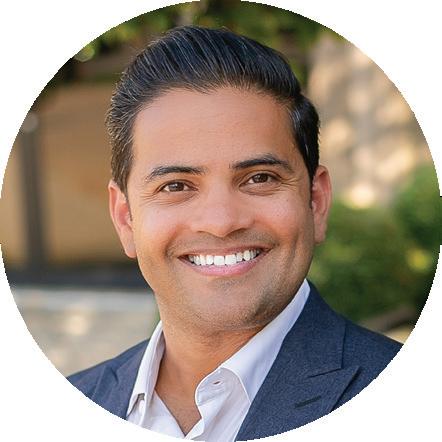
Mohammed started as an intern at Near North Insurance Brokerage in 2000 where he worked until 2003. He then moved to Global Benefits Inc. until 2012 before starting Alim Insurance Brokerage. The agency focuses on personal lines, commercial lines, and professional liability insurance. Outside of the agency, Mohammed serves on the Board of Directors at Evanston Chamber of Commerce, where he was President in 2021.
Alim Insurance Brokerage & Risk Management 820 Davis St Ste 215, Evanston, IL 60201 (847) 847-2126 mali@aliminsurance.com
Family: Wife: Mira Sons: Mikhail, Ibrahim Daughters: Aaliyah, Noura
Charles Hruska, IV started his insurance career in 2011 with internships. In 2014, he joined Seneca Insurance Company as an underwriting assistant, moving up to Senior Underwriter. Charles then joined his family’s agency in 2018 as Executive Vice President. Hruska Insurancenter, Inc. (now Arthur J Gallagher RMS) was started in 1950 by Charles’s grandfather and the agency’s focus is mainly commercial lines supported by personal lines.
Arthur J Gallagher RMS, Inc. 10040 W 190th Pl., Mokena, IL 60448 chas_hruska@ajg.com (708) 719-3770
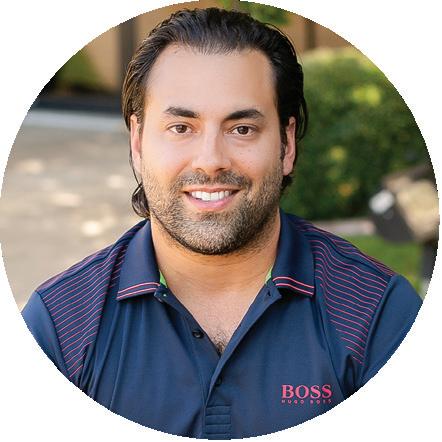
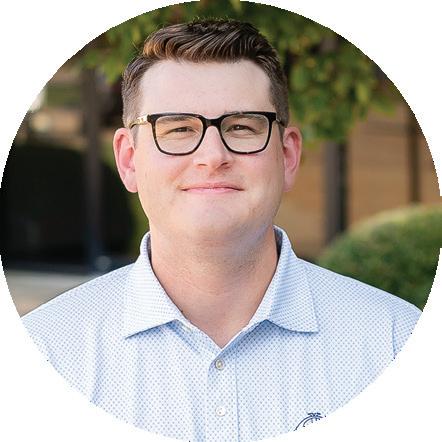
Family: Wife: Ellese Son: Charlie
David Jenk began his insurance career over 17 years ago while in college. He remained focused on the industry and, after law school, joined Northwest Insurance Brokers, where he is now Chief Operations Officer. Northwest Insurance Brokers was founded in 1956 and offers all lines of personal, professional, and commercial insurance.
Northwest Insurance Brokers
209 W. Jackson Blvd., Suite 800, Chicago, IL 60606 (312) 239-2717 djenk@nwibrokers.com
Family: Spouse: Lucyna Daughter: Selene
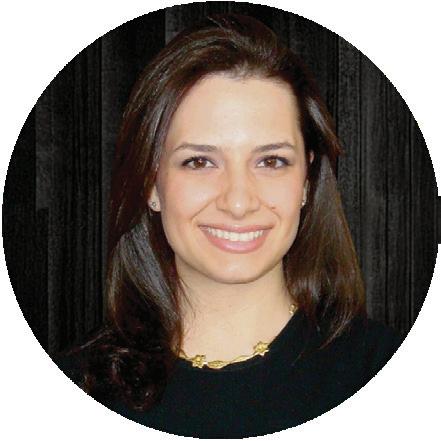
Rebecca Kohn is the in-house general council and Principal at Worthy Insurance and has been with the Skokie-based brokerage for 14 years. Founded in 2005 with a focus on skilled nursing facilities, assisted living, and home health, Worthy has expanded to include divisions focusing on commercial real estate, education, and municipalities. Rebecca serves as a Board Member for NHRMA Mutual, and also commits her time to being a member of the Lincolnwood Human Relations Commission.
Worthy Insurance
8130 McCormick Blvd, Skokie, IL 60076 (773) 945-9102 rkohn@worthyinsurance.com
Family: Husband and Four Children
Lindsey Polzin started her insurance career in 2000 working for her family’s agency in the personal lines division. In 2005, she moved over to the commercial side before merging with other local agencies. Lindsey is now Senior Director of Operations - Property & Casualty for Acrisure.
Acrisure
55 Shuman Blvd. Ste 900, Naperville, IL 60563 (630) 513-6600 lpolzin@presidiogrp.com
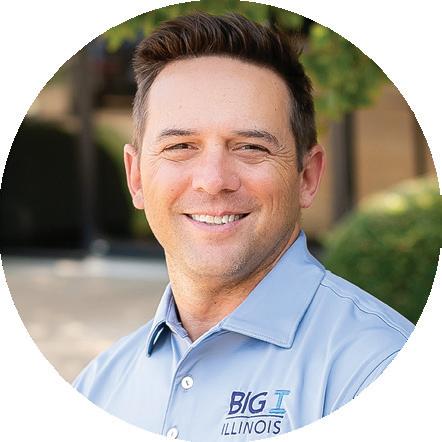
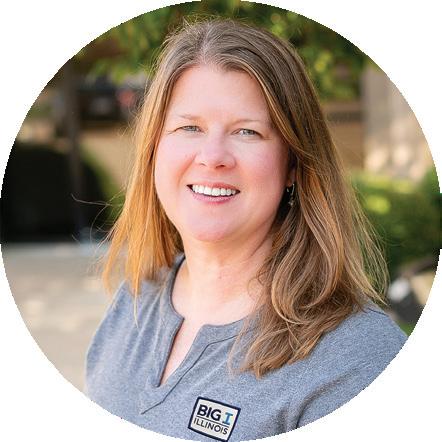
Family: Spouse: Tim Sons: Nick and Kevin
In 2012, Ray Roentz joined Heneghan, White, Cutting & Rice Insurance Agency providing personal, commercial, life, farm, and crop insurance to clients in Illinois, Missouri, and Colorado. In 2021, Ray purchased a majority ownership of the agency and is now President of Heneghan, White, Cutting and Roentz Insurance.
Heneghan-White-Cutting & Roentz Ins. Agency 200 N. State Street, Jerseyville, IL 62052 (618) 639-2244
ray.roentz@hwcrins.com
Family: Spouse: Karla
Children: Rocho, Robert and Loretta
Noele Tatlock has spent eleven years in the insurance industry and joined Unland Insurance & Benefits in October of 2019 as an agent in Personal Lines and Small Business. She is now the Personal Lines Division Manager. The agency provides Commercial & Personal P&C, Life, Health & Employee Benefits, and financial services.
Unland Insurance & Benefits 2211 Broadway Rd., Pekin, IL 61554 (309) 642-6855
ntatlock@unland.com
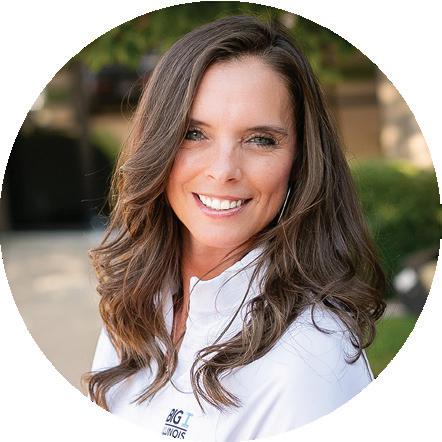
Family: Sons: Drew and Dylon

We’re with you every step of the way
Behind every Progressive agent is the support of more than 60,000 Progressive employees. It’s our mission to make sure you have the tools and resources you need to succeed.
From caring field sales reps to dedicated agent service teams, we’re ready to help you grow. Plus, we supplement your counsel and guidance with aroundthe-clock claims and customer service via our mobile app and online servicing.
Whether it’s sales, service, claims or anything in between, you’ve got a partner every step of the way.
TO LEARN MORE
Search for us online at Agents of Progressive, Progressive Connect, or Progressive Appointment.
Proud Platinum Sponsor of the Big I Illinois since 2005.

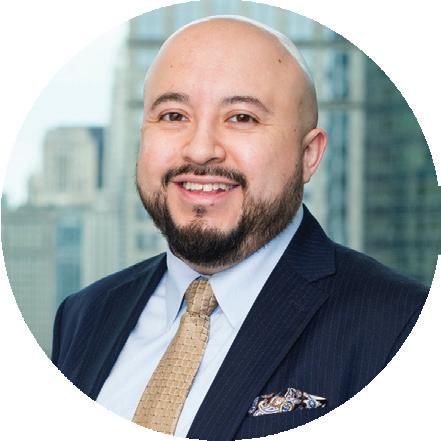
Luis Tayahua began his career in 1999 working for a State Farm Agent before starting his brokerage in July 2015 where he is President. Golden Owl offers property & casualty, commercial, and liquor liability. Luis is the President of the Summit Chamber of Commerce.
Golden Owl Insurance, LLC
6535 W. Cermak Road, Berwyn, IL 60402 (708) 637-4861 lt@goldenowlinsurance.com
Family: Wife
One son, one daughter
Sharon began her insurance career in 1989 and has held almost every position within the independent insurance agency, including agency owner. She holds state property, casualty, life, and health licenses including designations acquired over her 35 years in the insurance industry. Sharon earned The National Alliance Certified Insurance Service Representative (CISR) designation in 2000 while managing a large team of Account Executives and was part of the first inaugural Professional Insurance Sales Associate (PISA) designation from the Katie School of Insurance at Illinois State University in 2003. She is also serves as a board member for Big I DuPage Illinois. Sharon loves marriage and her maiden name, however called ‘Smiley’ by those who know her best.
Infinity Brokers, Inc.
PO Box 72533, Roselle, IL 60172 sharon@infinitybrokersinc.com (844) 409-1962

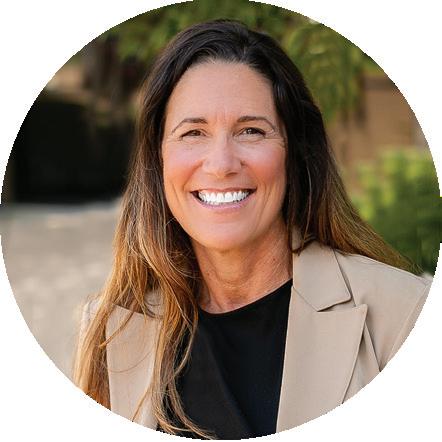
Family:
Spouse and a large blended family of adulting youth that range in age from 15-33.
Andrea Wallace began her insurance career in 1996 as the first employee of a 76-year-old captive agent. After spending 13 years in various roles within the captive company, she joined forces with another agent to help establish AAdvantage Insurance. Following several mergers and acquisitions, Andrea now serves as the Director of Operations under the current ownership. The agency specializes in Personal Lines, Transportation, Contractors, Restaurants, Life, and Medicare.
AAdvantage Insurance Group LLC
78 S Main St, Glen Carbon, IL 62034 (618) 692-4440 andrea@aadins.com
Family: Spouse: Andy Children: Alexis, Collin, and Ella
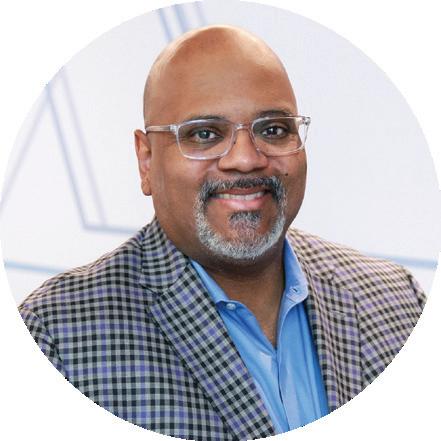
Amiri Curry began his insurance career in 1993 in Life & Health customer service. After leaving the industry to work in financial services, he returned to insurance in 2007, eventually joining Marsh McLennan Agency, a full-service brokerage, in 2016.
Marsh McLennan Agency 20 North Martingale Road, Schaumburg, IL 60173 amiri.curry@MarshMMA.com (847) 463-7280
Family: Spouse: Sandra Children: Four Boys
Kevin Lesch began his insurance career in 2000 when he joined his father’s agency. In 2013 he took over as president and aquired the agency in 2015.
Bartlett Insurance Group, LLC Bartlett, IL (630) 918-9785 klesch09@gmail.com

Family: Spouse: Trisha Sons: Jacob and Gavin
This is your association and as an insurance specialist familiar with the challenges your business faces, your insights and expertise can help shape the future of our association and industry. Your involvement will ensure that Big I Illinois remains a leading resource and advocate for independent agents. Association involvement can help you expand your network, increase your industry knowledge and exposure to developing trends and products, and grow in your profession. Get started by: Interested
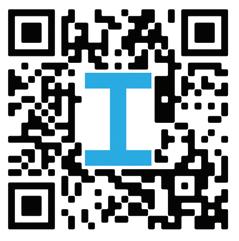
Jeff McMillan became licensed in 1989 and started working with Prudential in 1990 selling life insurance and investments. In 1992, he formed McMillan Insurance Services, Inc. and has purchased several agencies through the years. Jeff is a current Farm Agents Council Board Member.
McMillan Insurance Services, Inc.
309 S Crescent St, Gilman, IL 60938 (815) 265-4037 jeff@mcmillanins.com
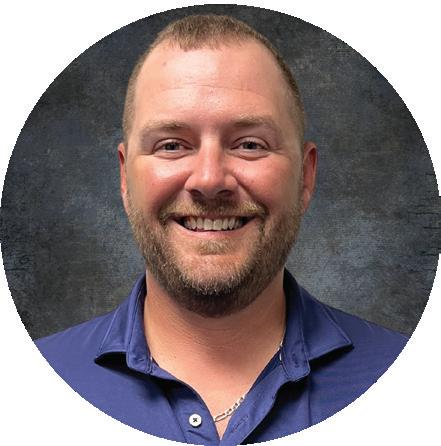

Family:
Spouse: Lisa Children: Jack & Sam
James Sager founded Sager Insurance Group in 2022. James has also been a producer for Premier Crop Insurance since 2014. Out of the agency, James serves as the fundraising chairman for Salem Community High School Academic Foundation, as a director for Greater Salem Chamber of Commerce, and as a founding board member of Little Egypt CEO program.
Sager Insurance Group, LLC 105 N. 3rd St, Dahlgren, IL 62828 (618) 736-2394
james@sagerins.com
Family: Wife: Amber Children: Edison and Reid
Luke Sandrock began his career in insurance 2009 after graduating from Monmouth College. He joined the family agency, Cornerstone Agency, where he is now Partner. The agency concentrates and specializes in crop, farm and agri-business insurance. Luke is a current Farm Agents Council Board Member.
Cornerstone Agency, Inc. 16255 Liberty St., Morrison, IL 61270 (815) 772-2793
lsandrock@2cornerstone.com
Family: Spouse: Ashleigh Children: Breckon, Jack, and Remrey

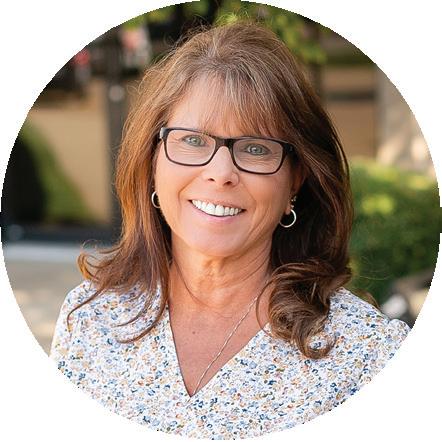
Lisa Lukens started in the agency in 1981 working full-time while attending school at SIU. Saliba Insurance, opening the doors in 1963, merged with Yewell Insurance in 1990 and offers both personal and commercial insurance.
Saliba-Yewell Ins. Services
P.O. Box 218, Herrin, IL 62948 (618) 942-2556 salibainsurance@gmail.com
Musso Insurance Agency 136 E. Dean St., Virden, IL 62690 (217) 965-4663 s.foster@ciagonline.com
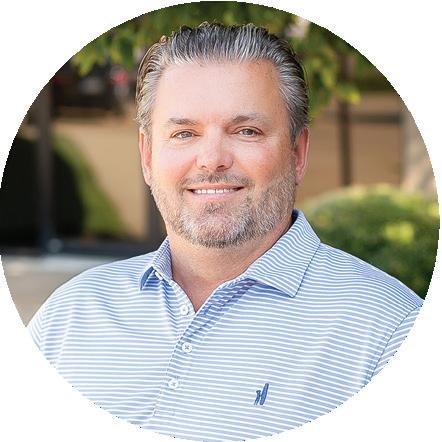
Family: Children: Tyler & Erin (Cole)

Family: Spouse: Anne Children: Gwen, Kendall, & Kathleen
Dustin Peterson is the 3rd generation member of the agency, joining the agency in December 2003. He currently serves as Risk Manager, covering all lines of insurance for the agency.
Peterson Insurance Services, Inc. PO Box 377, Clinton, IL 61727 (217) 935-6605 dustin@peterson.insurance
Family: Spouse: Jessica Children: Julian & Vivian
Nick Gunn started his career in 2006 at Nixon Insurance Agency, Inc. becoming part owner and Vice President of Commercial Lines. In 2023, Nick transferred to Envision Insurance Group as a Producer as part of the acquisition of Nixon Insurance Agency. Nick is also the Chief Operations Officer of CommonGround Insurance Group, LLC, a crop insurance agency located in Morton, IL.
Envision Insurance
150 B S Main St, Morton, IL 61550 (309) 263-2400 ext. 2407 ngunn@envisionins.com
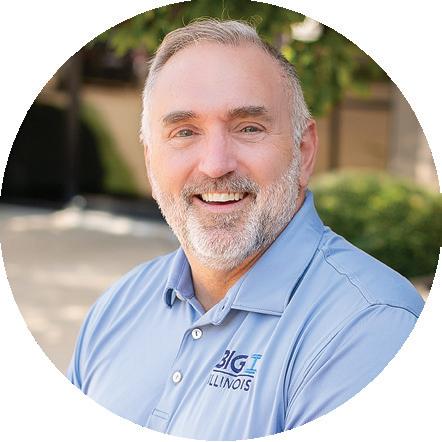
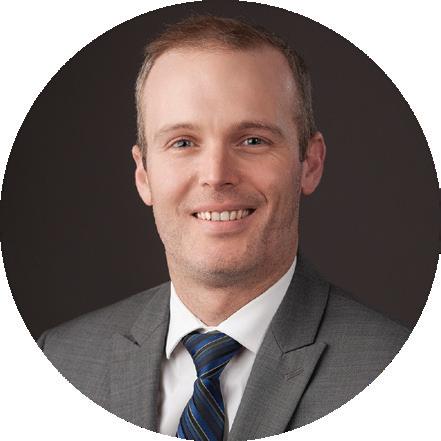
Family: Spouse: Jessica Children: Tripp and Cash
Brian Ogden is a second generation owner of Ogden Insurance Agency. His father started in the insurance business in 1959 in the same small town. The agency offers Personal Lines, Commercial Lines, Farm, Crop Life and Health.
Ogden Insurance Agency
123 E. Douglas, Petersburg, IL 62675 (217) 632-2206 brian@ogdeninsurance.com
Family: Spouse: Kim
Children: Lauren & Jonathan
After playing golf in college for Kaskaskia Junior College and Rockford University and graduating from SIUE in Edwardsville, Cody began his insurance career in 2015 in the family agency. Celebrating 83 years, the agency focuses on Commercial, Personal, Farm, Bonds, Health, Life, and Medicare.
Imming Insurance Agency
589 9th St, Carlyle, IL 62231 (618) 594-4536 cody@imminginsurance.com
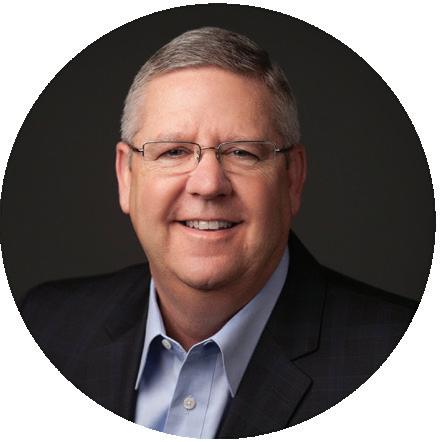

Family:
Spouse: Kylie Children: Daughter Logan and Son Woods
Bill Lawrence received his producer’s license in March of 1999 and bought his first agency in April of that year. He sold that agency in 2003 and purchased P/L/R Insurance Services. The agency joined Gallagher Risk Management Services in March of 2023. The agency is primarily a P&C agency with group and individual life and health accounts.
Gallagher Risk Management Services, LLC
139 N. Williamsburg Dr., Bloomington, IL 61704 (309) 827-0007 bill_lawrence@ajg.com
Family: Spouse: Jan Three Children & Six Grandchildren























































To




Formerly known as Big “I” Markets, Big “I” Alliance Blue is IIABA’s FREE online market access placement center program. We provide Big “I” members with access to specialty/niche coverages, program business and hard-to-nd markets. Our top tier carrier partners offer access to the products you need, with new carriers being added in response to member needs.
Affluent Markets
Auto and Home Standard Markets
Flood
Jewelry
Non-standard Homeowner
Umbrella & Home Business
COMMERCIAL
Bonds
Cyber
Commercial Auto
Community Banks
Executive Risks
Habitational
Real Estate Agents/Property Manager E&O
Small Commercial
Product availability varies by state.
After completing our online registration, you can begin submitting business online. Simply answer a few questions and provide banking info, licensing info, tell us about your E&O insurance, and accept the sub-producer agreement. Approval takes about one business day, then you’re off and running and can begin submitting and doing business online 24/7.
•No initial access fees
•No ongoing monthly fees
•No termination fees
•No monthly minimum production requirements
•No obligation to submit other accounts
•Ownership of expirations
•EFT commission payments
You can access the markets you need once a year or multiple times per day; the price to access products through Big “I” Alliance Blue remains the same: zero. Log in and plug in to the power!
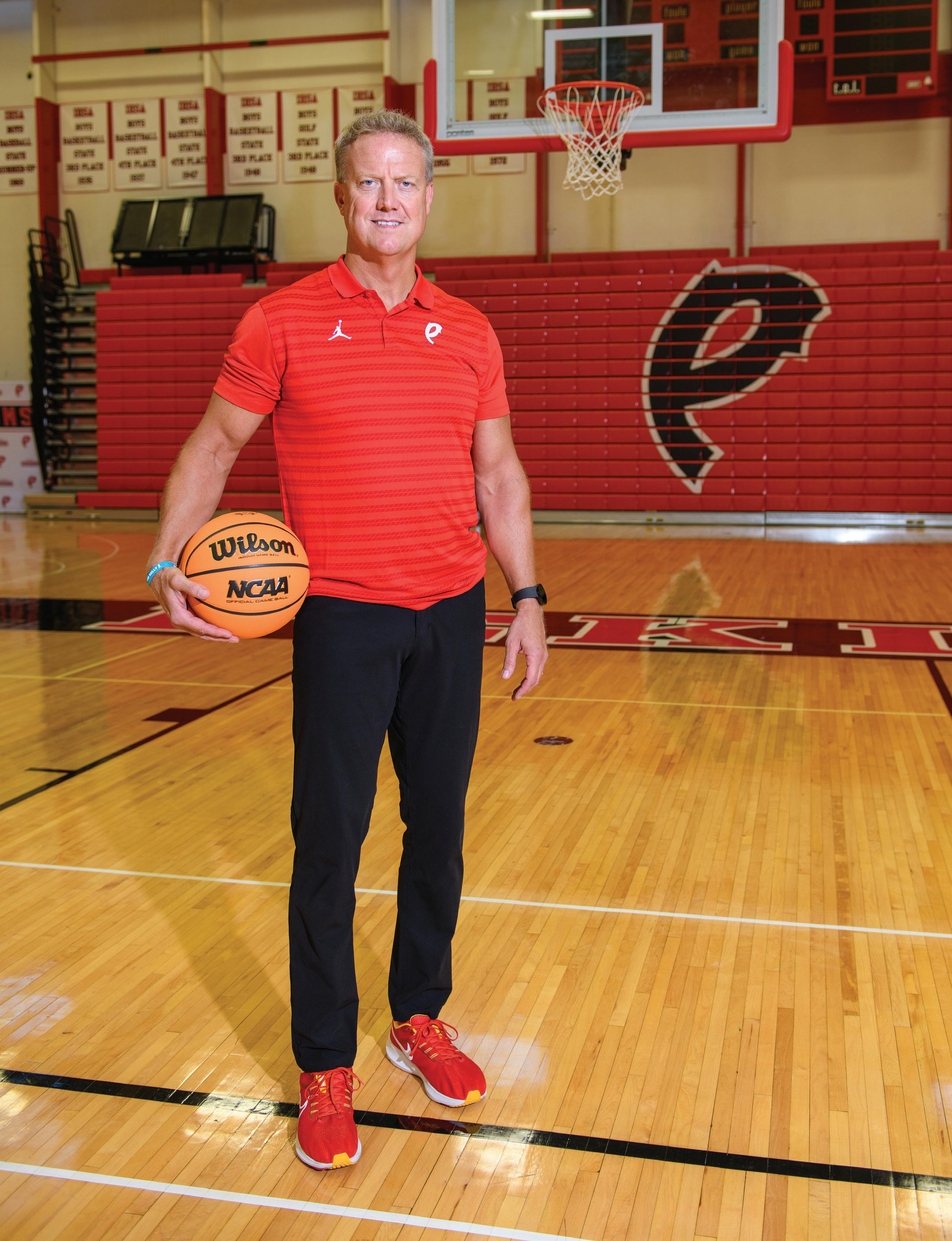
Congratulations on your induction as President of Big I Illinois. Tell us how you first got involved with the association.
The first I remember getting involved in the association was at the local level. The owners and leaders of the agency I joined were very involved in the IIA of IL (now Big I Illinois) at the state and local level. In the late 80s and early 90s, a strong local group in the Peoria area met once a month for lunch to discuss current issues in the industry, along with any concerning and pending legislation that we needed to be aware of. We were encouraged to contact our local legislators to ask for their support in providing our customers the best outcomes. In addition to that, I was encouraged to utilize our association for continuing education classes. From there, I was introduced to The National Alliance and its programs. My boss at the time, Afton Booth, talked with me about it and we agreed to both pursue a Certified Insurance Counselor (CIC) designation and complete all five parts together without taking a break. We did this in 18 months and it was very intense. However, I learned a tremendous amount during that time and it also hit home just how important education was in our field and how much of a “Profession” it really was.
Tell us a little about how you started the industry?
Like many in our industry, I did not plan on getting involved in insurance at the level in which I eventually did. After graduating from college, I did have a few interviews with insurance companies for underwriting, actuarial and claims positions. Our state, specifically in Central Illinois, was extremely strong in that area, with a number of large insurance companies that were hiring at the local and national level. While I preferred to stay in the area, I was open for relocation if it meant the start of a good career. While enjoying my first summer off in a very long time, I was doing various jobs, including some yardwork and landscaping projects for a neighbor up the street. One day, she came to me and said that her friend was President of an insurance agency and needed someone to replace a retiring Accounting/Controller position. I interviewed and noticed that the agency was one I literally passed 2-3 times a day and had no idea what it was. I was offered the job and started in November of 1989. My original duties were accounting, office managerial tasks, and flipping the switch on a new computer system that was still in boxes when I arrived. While I really enjoyed the Operations focus when I first started, I quickly felt like it was an amazing industry and wanted to get licensed. I took my test and was certified in 1990. I later approached the leadership with a desire to sell for the agency, but it was turned down. I left the agency after 3 ½ years for a sales job in the food industry, but was asked to come back as a producer in August of 1994.
What do you find the most fulfilling about being an insurance agent?
The more time I spent in the industry as an agent, I realized how much of a high-profile profession I was involved with. We are asked by our customers to give them the best guidance and direction, based upon the knowledge we have about legal documents and coverage forms. While there was a time when people (including us agents) were going to be able to secure coverage and make decisions about protecting their assets on their own because of the evolving technology offerings, it was quickly discovered that what we do wasn’t transactional, nor should be viewed as a commodity. Many of us have
spent countless hours and years developing an enhanced knowledge of risk management. Over time, our customers appreciate the efforts we’ve put forward in continuing that education and rely on us to protect what means most to them.
Aside from the impact on our customers, I really enjoy the people I am around every day. In my position, I get to choose who I want as part of our organization and I am truly blessed to have such amazing talent who have created a successful agency. We have great leadership here and people who work extremely hard to provide the best solutions and positive experiences for our customers.
What challenges have you faced during your career, and how have you overcome them?
Early in my sales career, there was much doubt as to my decision to commit to being an agent. For those not previously involved in sales, there are days when we may want to re-think what we’ve committed to pursuing. It is a daily grind with trying to find new customers and learning to deal with rejection, but the successes very much outweigh the efforts in getting to the position where people and businesses believe in you as their professional advisor and place trust in you with their insurance needs.
Once I moved into a managerial and ownership role, the challenges became different. For me personally, Challenges don’t necessarily bring a negative connotation. I get excited when presented with challenges. It certainly isn’t easy by any means. Decisions about the direction of the agency, investing in new talent, purchasing agencies and growing the top level revenue and bottom line profit to enhance the future of the agency are always going to be a challenge that many have to approach head on.
What other professions have you had?
The only profession that comes to mind is that of a “Coach.” I’ve been coaching High School Basketball at Pekin High for 30 years now. While some may not consider coaching a profession, what coaches and teachers do on a daily basis to mentor and educate young men and women should certainly be viewed as professional. Students and Student-Athletes are looking for mentorship and guidance from those who have experience and a genuine desire to help them excel in whatever field and/or sport they are pursuing.
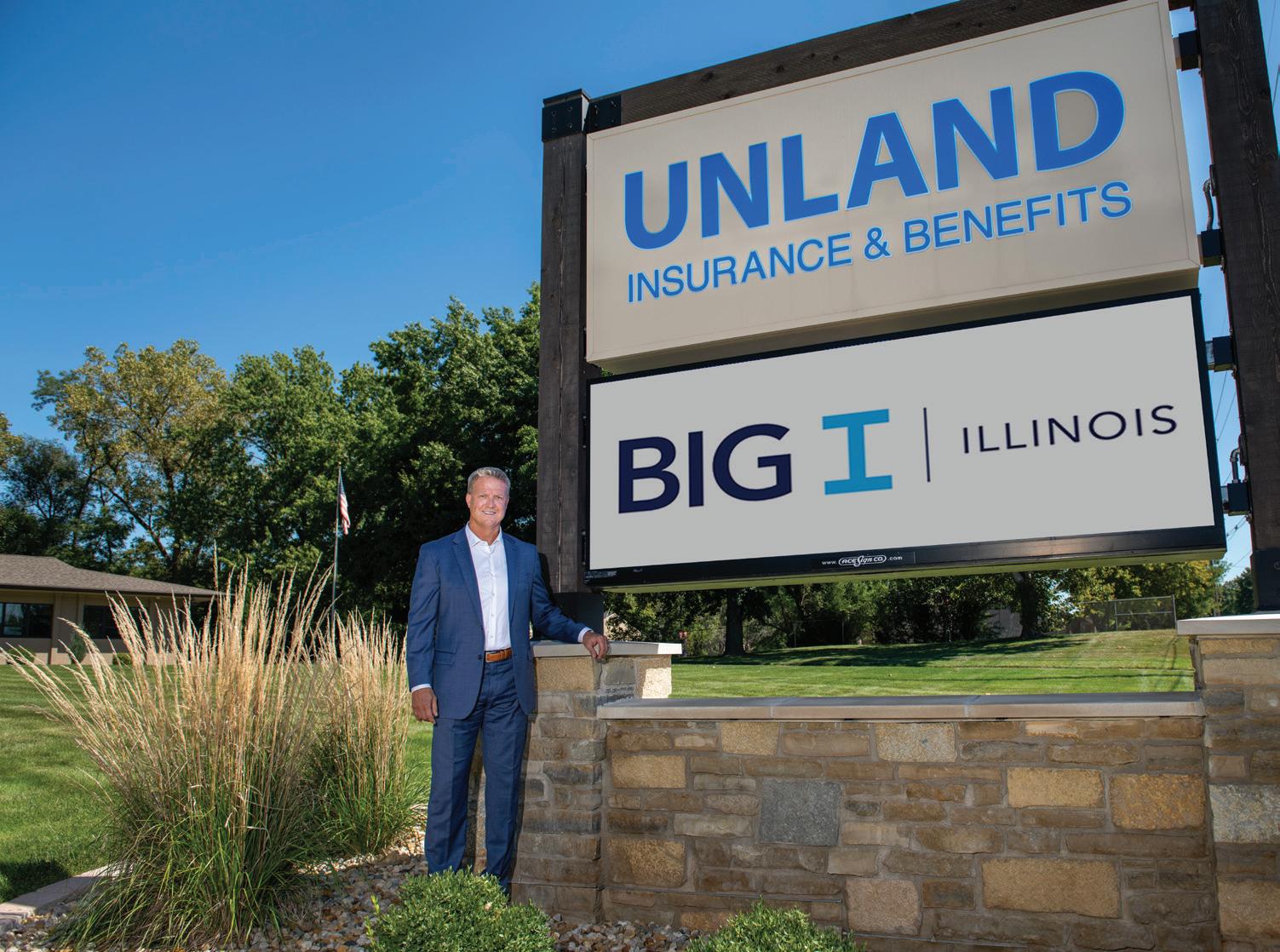
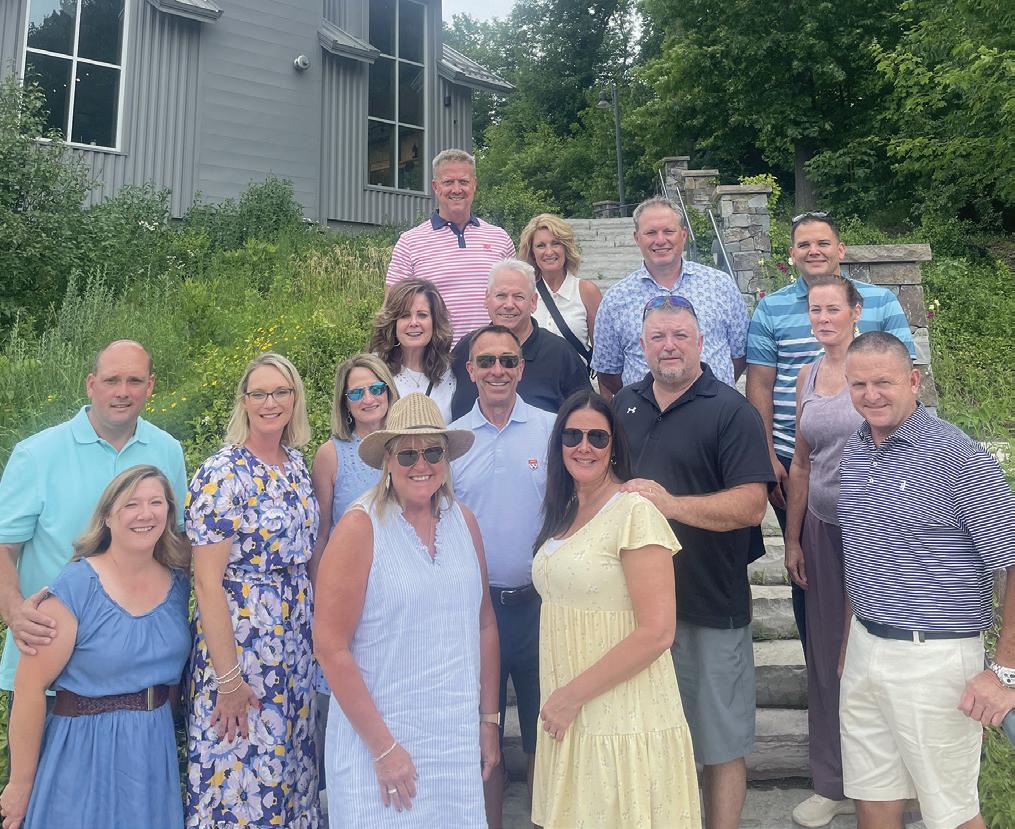
What made you want to go through the Executive Committee Chairs?
After a number of years of being involved in the association and serving on the board, I truly admired those who chose to lead our board and our association membership. I always looked up to them and felt I would like to be part of that leadership at some point in my career. I never felt like I had enough time in the day to do the positions justice, but was encouraged by many who I respect to commit to serving further. I was always impressed to be around people with more experience and more on their plate than I did, but chose to sacrifice their professional personal time for the betterment of the association. That commitment truly hit home and showed me that we owe it to our peers and thosewho will come after us to make our organization a great one that agents in the future can lean on like I did.
We all know the industry has faced many changes in the last two decades, especially the last few years. What do you see as some of the major industry issues in the immediate future?
Our aging workforce continues to be a focus of ours. While we are continually looking for younger talent and developing their knowledge and skill sets, we shouldn’t look past the great agents and support staff that we all have in place now. We have a GREAT profession that we all work in and many experienced employees are choosing to stay longer. Some will continue with their current roles and structured work weeks, while others want to stay involved
with their agencies and customers, but want to scale back their hours and possibly work a hybrid remote schedule until they fully retire. We know how hard it is to find talent and train them. We can’t forget that the experienced and knowledgeable team members we have now can still play a vital role in the growth of our agencies.
Our carrier partners are facing profitability challenges, specifically with weather-related claims and payouts. The profitability for some hasn’t been great in the last five years, which has resulted in some tough decisions that have adversely impacted our member agencies. Not only have some of the carriers limited or reduced the ability to write and retain business, others have also reduced the compensation paid to those agencies. This puts stress on the financial health of some and forces us to continue to find better and more efficient ways to serve our customers.
Looking down the road five, ten years, what other issues do you see independent agents facing?
In the very near future, the continued development and usage of Artificial Intelligence will be at the forefront of discussion for many. We are now realizing that AI can be used for contract and policy reviews, sales and marketing, risk management and loss prevention, among many others. Our industry needs to become more educated on how to utilize these tools and pass that down to our member agencies. I also feel like there is a struggle with many agencies to figure out the best structure between working in the office, working remotely, or a combination of both. Our industry is so dependent on relationships. What some are finding out is that it is more difficult to establish and grow those relationships if people aren’t working face-toface or interacting with customers in-person. There was initial push a few years ago to do that, but I see that trend slowing down and heading in a different direction. It will certainly be interesting to see what that looks like in the next 5-10 years, but agencies will closely monitor the impact of both options and see what works best for them.
What about issues Big I Illinois will have to address?
As many of our members know, the M&A activity in our industry isn’t slowing down. This isn’t necessarily a bad thing, but rather creates an opportunity for us to find different ways to show the larger agencies that our association is just as impactful in our capabilities to that of smaller ones. While some challenges within those organizations may be different, there are still many similarities and issues that the association can assist in resolving. Another crucial and indirect impact is that of association dues revenue. As the number of member agencies declines, so does the associated revenue. The work that our staff in Springfield does isn’t slowing down, inclusive of the advocacy and lobbying efforts on behalf of our members. We need to continually promote the tremendous work being done for our membership and make sure our members see the value of the dues they pay on an annual basis.
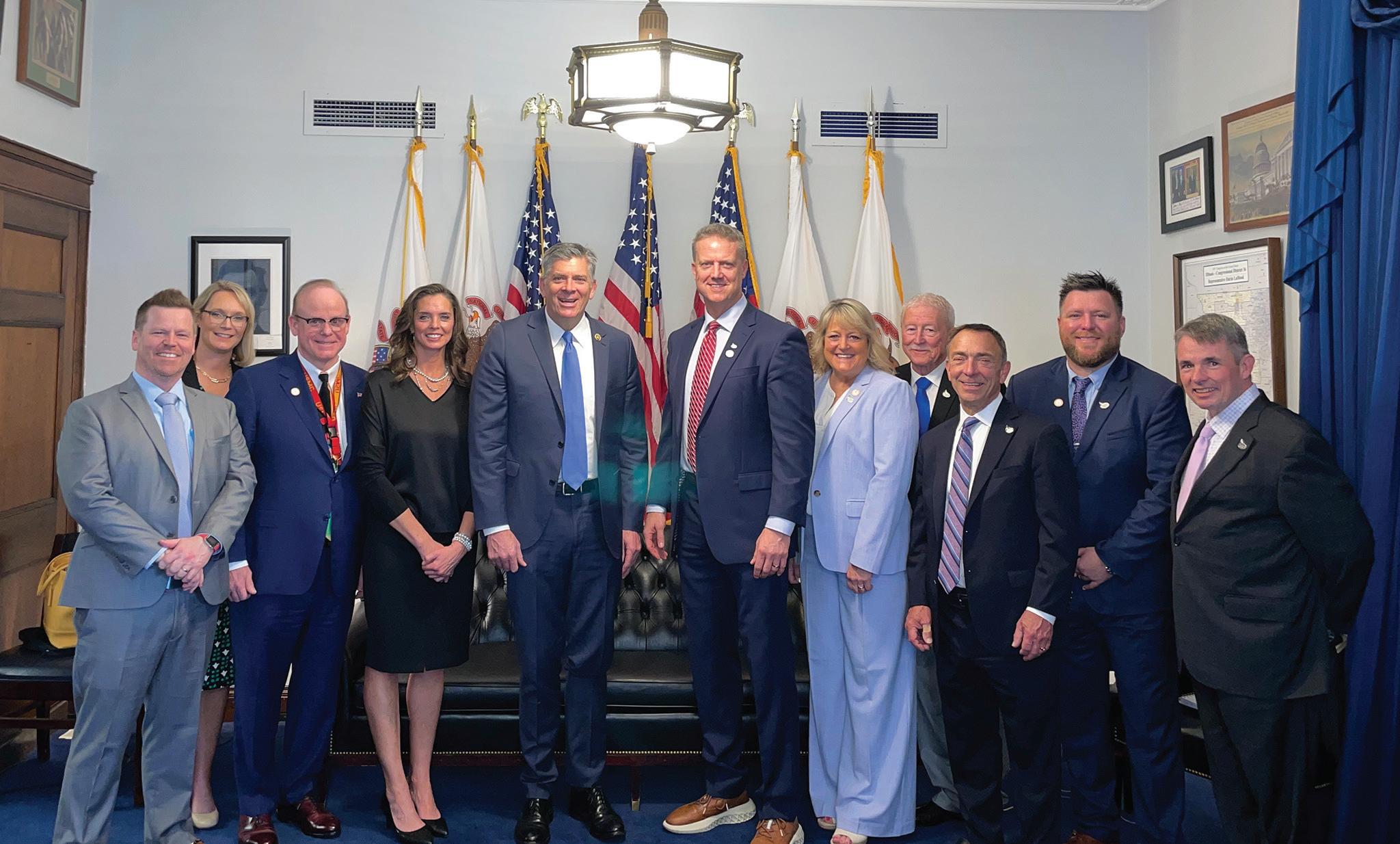
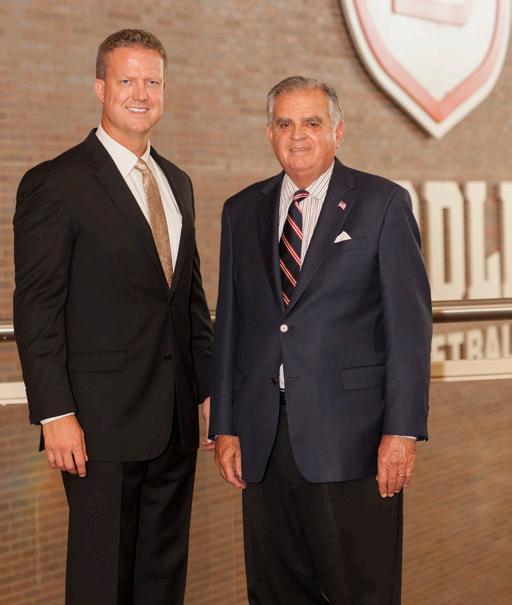
How has your involvement with the association impacted you both personally and professionally?
As many have said, our business is one of the greatest to be involved with. This really gets magnified when interacting and networking with fellow colleagues who share the same passions and challenges associated with the insurance industry. When getting involved with the various events, education classes, lobbying opportunities and celebrations, it really hits home just how far reaching our business can be and also creates many long-lasting and strong relationships with others. I’ve met so many tremendous people and look forward to attending the various events throughout the year, knowing that I will get to see them again. While you get to know them as regular people and hear about what is going on with them and their families, you also get to realize just how sharp they are and how impactful they are with their customers and communities.
In your opinion, what are the key benefits of Big I Illinois membership?
Professional Development
Educational Opportunities
Technology Offerings
Advocacy
Legislative Updates
Networking Events
Agency Management Assistance
What do you like to do in your spare time (hobbies, personal interests)?
For much of the last 30 years, my time away from work has been spent with my Family. My four kids have been extremely active in sports and other activities and we hardly missed any of that as they grew up. We’ve been to a number basketball games, baseball games, football games, golf matches, dance competitions, volleyball matches, athletic and scholastic awards banquets…and more. Aside from that, I enjoy exercising and outdoor activities, golf and traveling. The other personal interest I have outside of work is coaching. While I did coach many of my kids’ teams while they were growing up (baseball, basketball), I have been coaching at Pekin High School for 30 years as an Assistant Coach. When I first started out of high school, I was asked if I would coach the Freshman team. The President and Vice
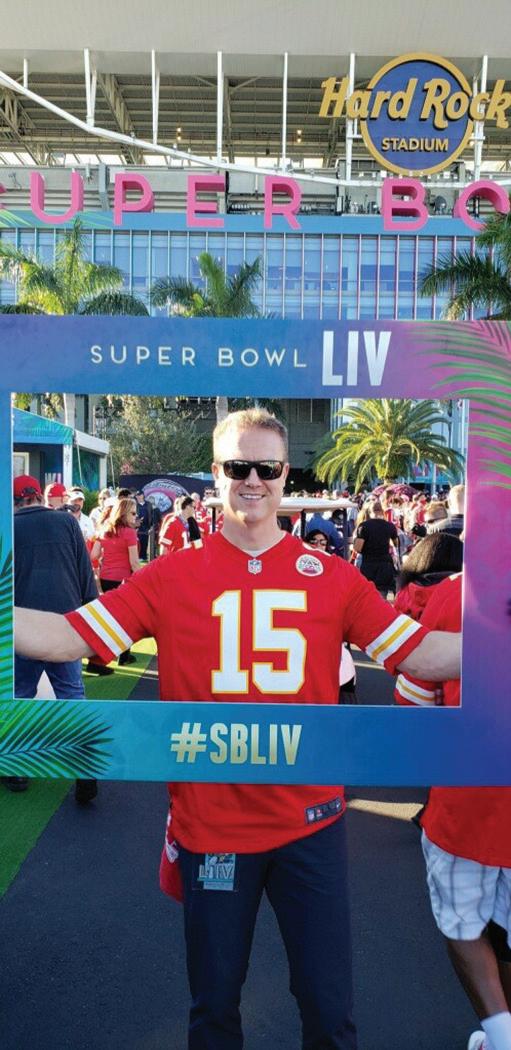

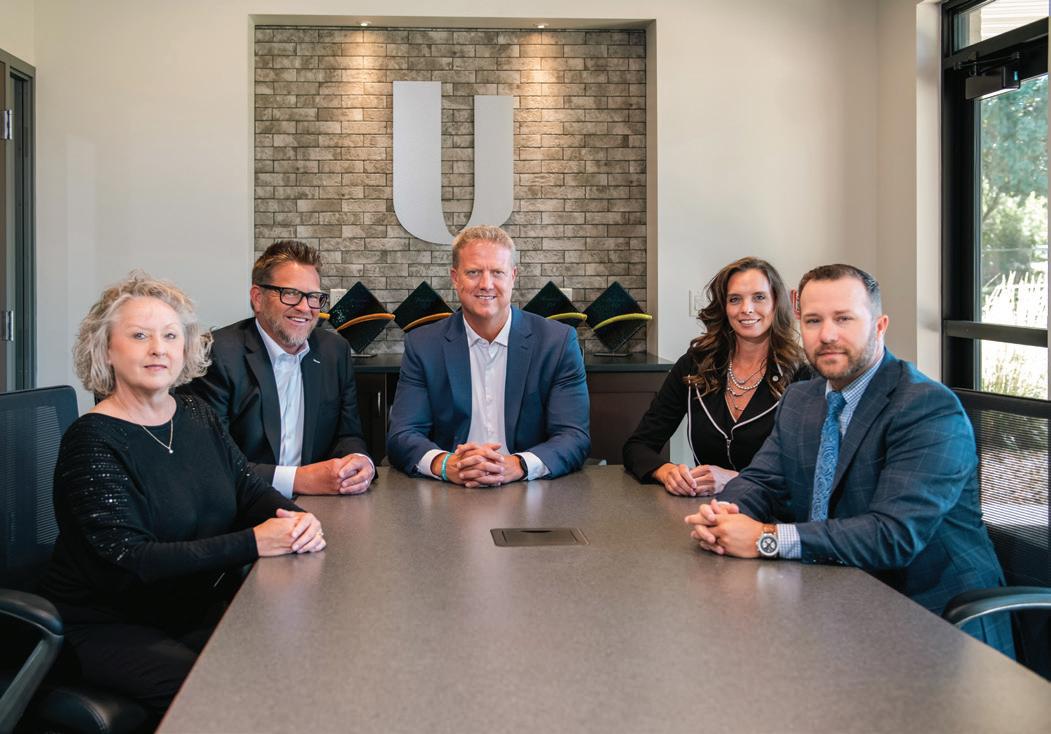
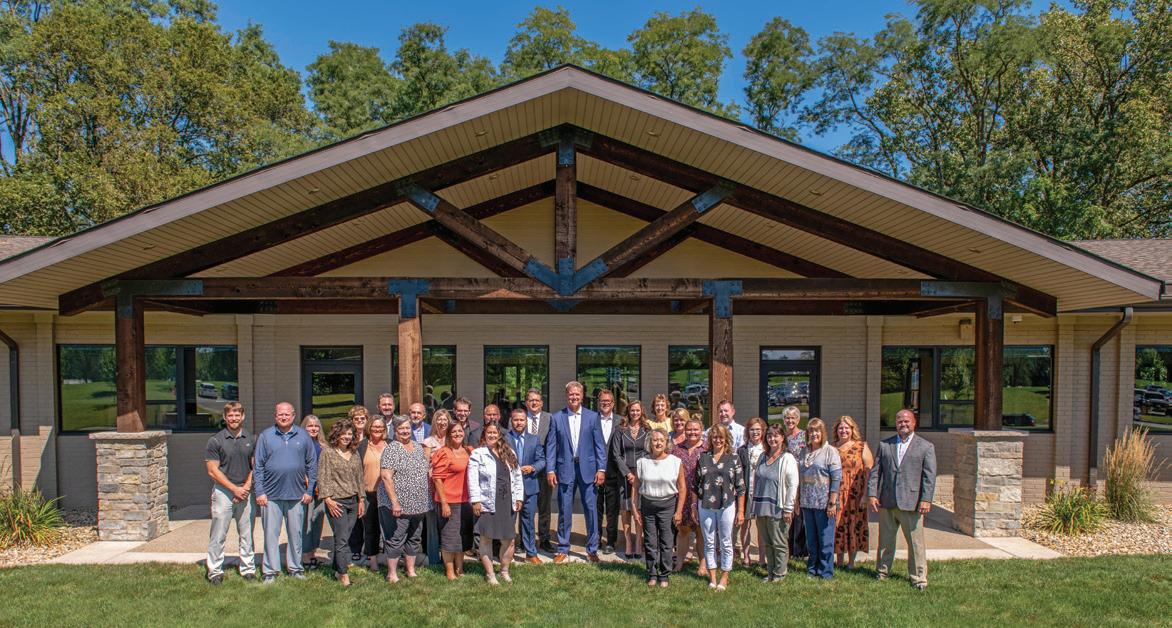
President of our agency at the time were very supportive of my involvement with the high school and the community. I did this for three years. After a year off, a new head coach, Joe Stoner, was named and he asked if I would be his varsity assistant. It was a very tough decision because of time away from work and family, but it was something I wanted to do and felt like I could bring some value to the kids on the teams over the years. I coached with him for 10 years, two more head coaches for seven years each and have now been coaching with Jeremy Crouch for four years. I am thankful for my employer originally allowing me to do that and for the various coaches throughout the years and the school district to also allow me to work with kids. Over the years, it has been more challenging to commit to the activities every day, but I’m blessed to be around those who understand that and will take what they can when I’m there. Coaching young men is very rewarding and brings an appreciation for what young kids go through in their lives. I also feel like I can bring some value to them and have an impact on their lives. They may not exactly like me during the time I’m coaching them, but I think they realize over time the reason why I do it and ultimately want to help them develop as young men on and off the court. Many of the traits and characteristics that we try and instill upon them are those that will be appreciated after their playing days. It is very rewarding to see them excel in college, get married, have kids and want to call or text me and tell me about it. That makes it all worth it.
Tell us about your family? How do they feel about your new role with Big I Illinois?
My Family is one of the most important things in my life and has been at the center of why I do most of the things I do. Lisa and I have been married for 32 years now and have four tremendous kids. She has been very instrumental in the success of my career personally, but also that of our kids. Aside from her current role as an Executive Recruiter for the last 17 years, she has also managed everyone’s schedule and made sure our family had everything they needed continued...
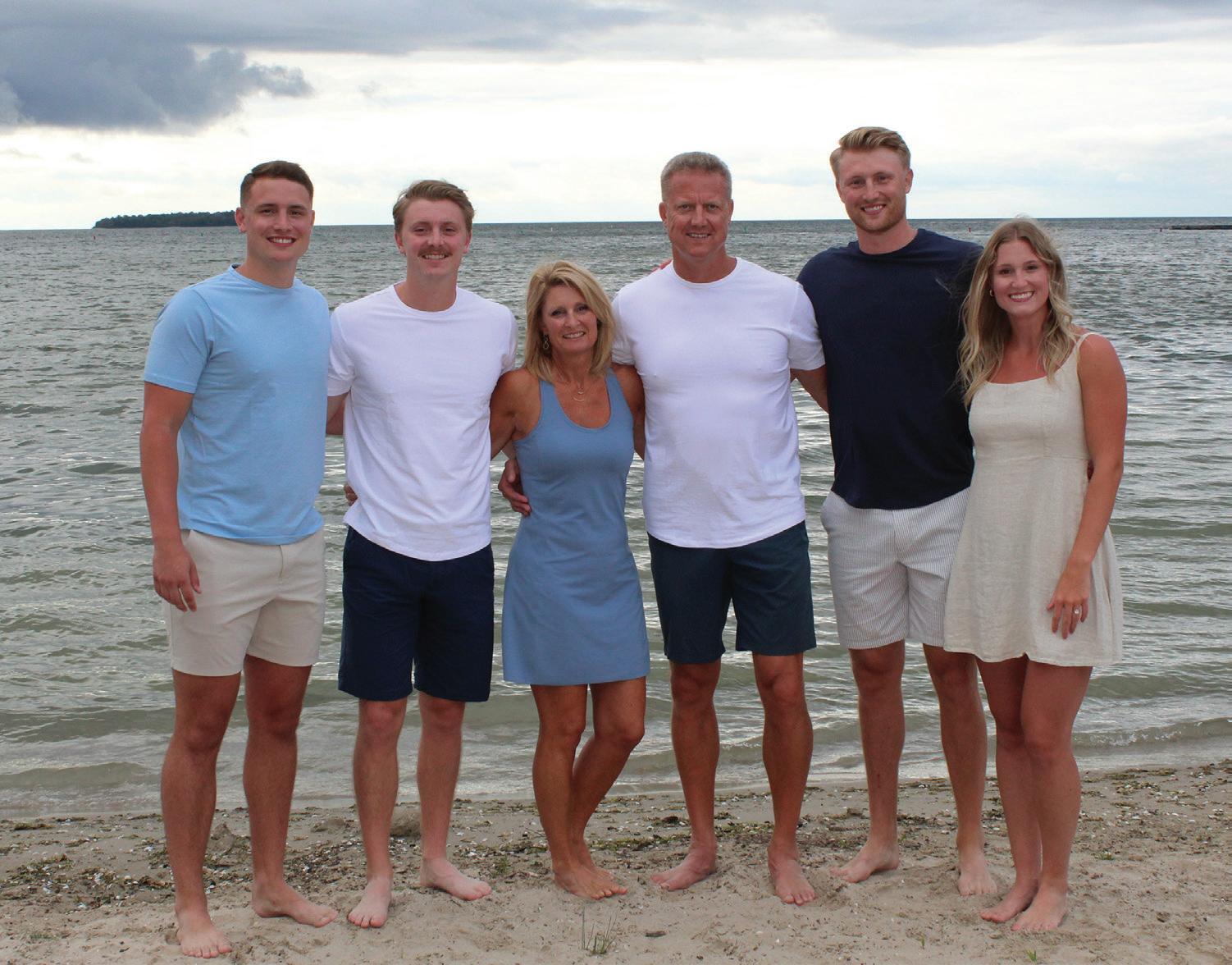
and when they needed it. Nathan (30) lives in Chicago. He graduated from Northwestern in 2017, is now a producer for HUB International and is doing very well. Carter is 25 and lives in Indianapolis. He graduated from Illinois State University in 2021, is a Senior Business Development Associate for Arlington Roe, and loves the agents and people he works with. Jenna (23) graduated from Southern Illinois University – Edwardsville in December of 2023 and is in the medical field. She has applied to some P.A. schools and is waiting to see where the next few years of education will take her. Justin (23) graduated from the University of Wisconsin-Madison this spring of 2024 and is now a Graduate Assistant Basketball Coach at the University of Tulsa. They all have brought so much excitement and joy to my life and are one of the reasons I get up every day to take on whatever is in front of me. I asked my family for their thoughts on my year as Big I Illinois President.
“My husband has been volunteering ever since he started his first job after college. In volunteering, his leadership skills have always been exhibited in every role that he has had. The roles he accepts are taken seriously and with every effort to enhance the role he is in and work with those he is serving. Pat has also donated time in organizing our fundraising efforts at St. Joseph Catholic Church. Throughout it all, his belief has been to share his talents with others in an effort to give back to God in thanks for all that he has blessed us with.
When discussing this role with Big I Illinois, we were still traveling a great deal to follow our twins in their respective college sports. I wasn’t quite sure how he was going to be able to juggle it all. However, just as he has in the past, he has donated his time and taken his role seriously to exhibit his beliefs of how important he feels the Big I is for the insurance business not only in the State of Illinois but throughout the country. He handles all matters seriously, looking at the implications of the decisions made in the Association from all sides and believes strongly in the work the organization is doing. Personally, and as always, I feel pride in all that he has accomplished with all that he juggles; and I find his depth of knowledge in the industry unmeasurable and invaluable. In all decisions, he wishes to represent his state and support his customers with only the best products and service he can provide. As President he will act with honesty and integrity and provide great insight to the industry that he loves.” -
Lisa
“Growing up, these groups were all the same to me. Associations, boards, Independent Agents groups - I didn’t know what they were nor what their purpose was. Now that I am in the industry, I understand the influence and how much impact the Big I has in the workplace today. Because the majority of people reading this understand my dad’s working resume, I feel I should focus my answer on something that people will not have seen on that piece of paper.
A discussion with my dad happened in my bedroom one late night when I was in 8th grade, headed to high school. The Pekin Community High School Head Basketball Coach was stepping down after a long tenure. My dad was an assistant coach for the high for almost my whole life whilst working in the daytime -first at Unland, then Nabisco, and back to Unland. The conversation was short, but meaningful in the same moment as he asked me whether he wanted me to have him as a head coach for my High School Basketball team for the next four years. Of course, I explained how great that would be to play for my dad without knowing the caveats to what that meant. It would require more time in the gym, away from family, his job, and away from home and for him to miss a lot of what was my goal after high school. It made me really think about my answer and what that meant for the six of us - the real team.
Ultimately, he decided to hold back and remained as an assistant coach for the high school team while moving up the ladder at Unland to his top rank now. He put his family first, realizing that this idealistic picture would maybe be just a distraction to not only continuing as a great father and husband, but also as someone who will lead on a greater level. The workplace and community is better off because of that decision. I have no doubts that these crossroads came about more than we are aware - to move somewhere, lead another company, work for a larger agency, make more money... Whatever it was, he knew that pulling him one way was a detour for our “real team” and maybe one that would disrupt all of the things we had going on in our lives.
I want to share one stat that isn’t in any record book nor will be in any newspaper. My parents and my family made sacrifices big enough for me to spend my high school summers playing basketball just about everywhere in the US. All of these sacrifices then led to me having the chance to play at the collegiate level in the Big Ten at Northwestern. As I looked back at all of the games, 6-hour round trips to practice on Thursdays and Sundays, and tournaments in remote locations, my parents didn’t ever give themselves the option to not go.
My mom and dad missed a total of five basketball games in eight years. With three other kids at home. Home or away. Evanston, Las Vegas, Cancun, Columbus, Philadelphia, Minneapolis in a blizzard, West Lafayette at 9 Central time, Ann Arbor with a 12-hour car ride through a snowstorm, Raleigh, Los Angeles - the list goes on. Whether I played or not, they ALWAYS showed up. I will never forget that.
I can go on for pages about what my dad means not just to me and my family, but everyone around him. The question was “How do I feel about your Dad’s new role with Big I Illinois?” The answer isn’t one that is hard to find. I feel that this role was earned, not given. If you have the chance to spend five minutes with my father, you will quickly understand that family and community have always come first. To personally see the impact in both, I will say that he will always show up, no matter how many balls are in the air. I feel that the Big I will soon come to find the true impact
of my dad’s presence and everyone that has the chance to spend time working with him will realize it isn’t one to take for granted. The Big I is extremely lucky to have him in this role and at the head of its community.
The roles are now reversed - I am the one that gets to sit on the sidelines to watch. I don’t plan on missing a game and I am eager to see what is next.” - Nathan
“I am very excited for my father to take on this new role, selfishly. This comes from the admiration and joy of being able to follow in his footsteps. Like my brother, Nathan, I am also in the insurance industry and intertwined through the wholesale avenue.
How we got to this point is another story in itself. Growing up, he embraced the parental role of molding my siblings and me to be the best people we could be. He was there as the best dad, teacher, coach, and leader possible. Friendship came a little later. I have an incredible amount of respect for my father for raising such a stubborn kid… Justin was a handful.
When I graduated high school, my Dad and I started to become more of friends. Geographically, work and school had pushed me further from home, but personally much closer to my father. The industry has provided us the opportunity to attend events together and I am very blessed and grateful for that opportunity.
In the spring of 2022, we attended our first Young Agents Conference together in the Chicagoland area. I was about three months into the industry and probably didn’t know how to spell insurance. Today, I am on the Young Agents Committee and have the pleasure of working with my dad within the association. This year, we attended our first Big I National Convention together in Indianapolis. I am incredibly blessed to watch my dad prepare to take on this role firsthand and yes, selfishly, excited because business has brought us together in another way and allowed us to be friends as well as family.” - Carter
“It is rare that my father steps into a room and doesn’t know anyone. Growing up, I would watch as my dad could not leave a building without stopping to speak to a few groups of people. He never missed an opportunity to introduce his kids or to share what was going on in our lives. He never failed to make that person feel heard and seen, as he intentionally remembered vital moments of their own life. When I think about what my dad has done in this industry, I don’t think about all the awards he has received or the things he has accomplished. I think about how many people have been impacted by my father’s friendship. I think about the long term connections that he has created. I think about the heart he has behind it all, which is a heart to serve his community and his family.
My father really does it all and he has worked extremely hard to have had this much success. I couldn’t be prouder to call him my dad and I’m so excited to see the direct impact he will make with this new role.” - Jenna
I will piggy back off of what Nathan had said. My parents have always been “Family First.” In the same boat, my parents maybe missed a handful of games in my three-year career at The University of Wisconsin-Madison. They both work very hard to provide us four with a great opportunity at success.
I also can say that I know very little about what my Dad does day in and day out. I have always wanted to be around Sports, so I had little interest in going into insurance. But, some might see it as a negative thing that I didn’t really get to know what he does at work. I see this as him putting work aside when he comes home from work. When he comes home, he is a Father, and tries his hardest to keep the two apart.
We are very fortunate to have a great role model to look up to. How do I feel about his new role with Big I Illinois? I think he deserves all the credit he can get, and anyone who works with him will know that he will take care of his people around him first.” - Justin
What lessons from your personal life have you incorporated into your business career?
I had a great childhood and upbringing in Pekin, IL and was blessed with great parents and siblings to grow up with. I wasn’t given anything and had to work for any achievement or accolade. I was taught humility in many experiences I had throughout high school and college and I try to carry that trait in my work life. I also feel like a leader should be a humble servant in many ways and demonstrate the willingness and ability to do the work that you expect others to do and show by example. I was also taught at a young age to respect those you are around and know that everyone is different. On a daily basis, you don’t know what others are going through. You may think the problems or challenges you are facing are critical, but become trivial once you find out what those around you are experiencing. I also incorporate some aspects of my coaching experience and further involvement with teams over the years. Our agency certainly has similarities with any “Team .”Everyone has a role, everyone has different capabilities and skill sets, everyone needs to be accountable to the other team members. We all need to learn from our mistakes, but certainly celebrate the wins we have throughout the year and recognize achievements when they happen.
Finally, when all is said and done, what is the most important message you hope members take away from your Presidency?
I hope that after my year as President, members continue to feel good about the impact they have on their customers and that they have an association that continues to fight for our livelihoods while providing all the tools and resources necessary to be successful. I also hope they feel like I continued the strong leadership that the association has been accustomed to over the years from those who served before me.
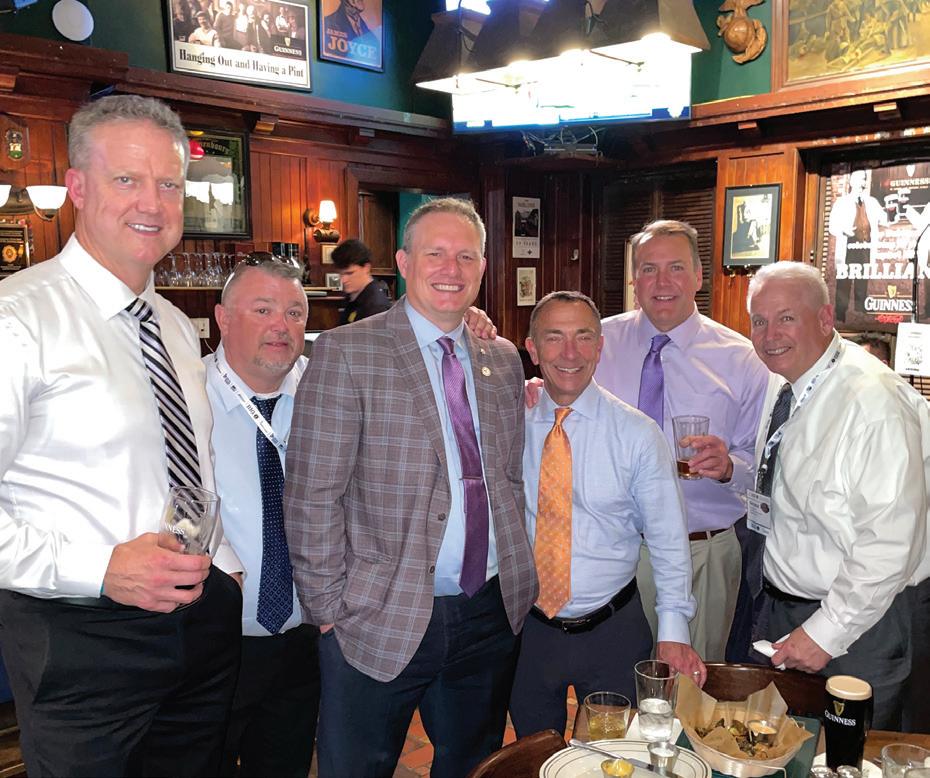

Leadership forms the core of a successful business. Leaders are in charge of inspiring employees and maintaining morale. They solve problems and get results. Without effective leadership, a company would be directionless and without vision. Poor leadership leads to a breakdown in internal communication and affects the business’ bottom line.
As the leader of your insurance agency team, you are responsible for the team’s success. You play a vital role in taking your insurance agency to new heights and inspiring your employees to achieve their goals.
The following tips will help you fulfill this role to the best of your ability.
Too many business owners and leaders view their employees only as a means to make money. Your insurance agency should be the difference you want to see in the business world. You can set an example by protecting your team from demotivation, burnout, and stress.
Your insurance agency team looks to you for help and guidance. Provide your agents with the support they need by doing the following:
• Provide them with all the necessary tools to perform their job efficiently.
• Check up on their well-being regularly, and allow them to take a break when they feel overwhelmed.
• Create career opportunities and encourage them to work towards personal career goals.
Use all the available tools at your disposal to manage and lead your team. Doing this means leaving the old way of doing business behind and equipping your employees with digital tools to make their jobs easier. Give your team members equal opportunity to use technology to improve their work skills and incentivize hard work.
Place enough trust in your employees to allow them to work from home if they choose to do so. Discuss the possibility of
By Jenna Kleiber
hybrid and remote working hours, and implement flexible hours where possible. The world is not the same place it was before the pandemic. Thousands of people work from home, and this has not negatively impacted their performance.
To be a great leader, you must have incredible communication skills. Refrain from communicating with your employees exclusively through emails or video presentations. If you want to inspire and motivate your team, you must be approachable. That means being available to listen to your team when they want to bring potential issues to your attention. It also means responding in a manner that makes employees feel heard and appreciated.
Good communication between a leader and a team eliminates misunderstandings and keeps the wheels of the organization spinning toward success.
You’re in the insurance business to provide a service and turn a profit. Along the way, you’re guiding your team to new heights and teaching them new skills. However, as technology improves and insurance processes become digital, coaching is often a missed opportunity to strengthen sales teams.
Sometimes, leaders replace coaching with stern feedback, which may lead to conflict. Think of it this way: if you’re constantly harping on your team’s mistakes, they’re not learning anything. If you take the opportunity to show them where the issues creep in and how they can prevent them, you’ve helped your team grow.
Coaching your team helps bring out the best of their skills. You can use coaching to build strong relationships with your team while celebrating their wins.
It’s true that if you can’t lead your own path to success, you can’t lead anyone else’s.
Self-leadership allows you to fulfill your objectives while motivating your team to reach their goals.
The principles of self-leadership include the following:
• Dedication
• Communication
• Motivation
• Influence
• Responsibility
• Self-awareness
• Emotional intelligence
• Physical health
Leading yourself means becoming accountable for your actions while inspiring team members to follow your example. Aside from helping build stronger relationships with your team, self-leadership also helps you become more motivated to reach business targets.
You should set the standard of excellence for your insurance agency and guide your team to model this behavior. Setting the pace provides an example to your team of how and when you want things done.
You also need to identify areas in your agency where change is needed and initiate a plan to implement that change. Doing this will not only allow you to set the pace for achieving excellence, but you’ll also take the lead in transforming your agency into a harmonious space where your team can work on accomplishing collective business goals.
The success of your insurance agency relies on your leadership skills and how they translate to your team. You are the driving force behind your achievements and those of your team. Effective leadership is essential not only to your insurance business but to the insurance industry at large. The more influential leaders in the industry, the better the outlook for the insurance sector of the future.
Jenna Kleiber is the Marketing & Sales Manager at Jenesis. Find out more at jenesissoftware.com.

Rather than attempt to be all things to every kind of business, we focus on the ones we know best—restaurants and bars, grocery and convenience stores, medical clinics and auto service shops—to deliver outstanding property, casualty and workers compensation insurance. Deep niche expertise, with insight into unique business risks, is how we cover the details that make the biggest difference to our policyholders.
To discuss an agency appointment, give us a call at 888.5.SOCIETY or visit societyinsurance.com
“We’ve Always Done It This Way”

By ReFocusAI
Discover how Chris Cline, Executive Director of Agents Council for Technology (ACT), challenges the “We’ve always done it this way” mindset in insurance, emphasizing innovation, change, and growth.
While cliché at this point, the “We’ve always done it this way” crowd does still exist. In insurance, the drumbeat of resistance is perceived to be louder than in other industries. Why? Success can breed complacency, and in a market flush with cash, large M&A acquisitions, and record job stability, we don’t often stop to wonder what we could do better.
But things change, and those who are not innovating, growing, and developing get left behind. So, how do we approach a change mindset when things are going well? How do we prepare for change without doing things just for the sake of change? We talked with Chris Cline, Executive Director of the Agents Council for Technology (ACT) and author of The Inertia of Legacy, about his thoughts on the “how and why” of change in our industry.
ReFocus AI: Why should any of us be focused on change, either professionally or personally?
Cline: There is no arguing that change is necessary and inevitable in almost literally every facet of life. And while every generation through each of society’s most significant transformations will attest that their cycle of change was the most dynamic, I think there is an objective case to be made that right now is the fastest and most significant amount of change humankind has ever seen – and with AI still in its infancy it will likely only get faster.
ReFocus AI: But why in insurance? This is an industry some call “recession-proof” and has often been exceedingly successful without changing as rapidly, while other industries have been forced to change.
Cline: Many will posit that we must change in our industry to keep up with the consumer expectation set by innovative companies like Amazon. We’ve heard it and likely agree with much of it – 24/7, anywhere and anyhow, immediate shipping,
free returns, maybe even some recommendations for other items we might like. Huge stuff, hard to argue, and we must learn from all of this. In fact, we can all name insurance entrants who aimed to displace agents, carriers, and tenured tech all through the Amazonian lens. Let’s save that debate for another time, but I think many would agree that their experience and learning has pointed back to the value offered from within the very model they were looking to disrupt. Thus, the why?
Viewing insurance products through the lens of an identical, repeatable, and predictable product like a simple blender, they are right. But insurance is not a blender. In fact, every single customer is different. Every agency is different. And, every carrier is different. Though there are some customers that will absolutely buy our product as though it was a blender, when considering the change(s) you want or need to make in your firm (agency, insurer, vendor partner), it’s critical to assess if that is your target customer. Without a clearer identification of who your target customers are, it is very difficult to define and build a customer experience for them. And lack of clarity here can send an organization down some unnecessarily frustrating paths whether talking about technology, people, or even trading partners. This is your why.
ReFocus AI: That absolutely makes sense. And if that is the “why” then how about the “what”?
Cline: In my mind, “what” is like saying “the fundamentals”. And while it is not always a popular thing to say, this is a fundamentals heavy industry. And I’d be so bold to say that some of the challenges we face, or even create, happen by losing some focus on these fundamentals. Afterall, doesn’t everything that all of us do every day ultimately lead to making certain that there is a financially sound insurer available to uphold its contractual obligation to indemnify a policyholder at the time of a covered loss? Everything. Yes,
a lot goes into that, but that is why our industry exists and what makes it complex. Afterall, if we cannot uphold our policyholder obligations, we don’t exist – for long.
These are not excuses to dismiss innovation and change. Rather they are a challenge to make sure we are focused on what needs to change and why. Some may not agree initially, but I submit that even over hundreds of years in our industry (in which a lot really has changed!), many fundamentals, many “whats” do and will remain. Though not intended to be an exhaustive list, since day one hasn’t the industry needed to prospect, quote, underwrite, price, sell, transfer risk, service, bill, settle claims, and you could argue compliance? There are certainly others, but many are captured within the spirit of this abbreviated list.
ReFocus AI: Technology is certainly an avenue for the “how” of some change in this industry, but not all of it. When agents approach “how” for their own change, what steps do you suggest for them?
Cline: This is where we explore the notion that “we’ve always done it that way isn’t working”. Afterall, without alignment about what you are doing and why you are doing it (and how you are measuring it), it’s very difficult to assess if how you are doing it is working or not.
All that said, I do believe most would agree that one of the more harmful expressions in business and life is “we’ve always done it that way.” Hearing it shuts down dialog, stifles creativity, and is a barrier for any form of meaningful innovation. And, in reality, it’s also usually wrong. Afterall, if we are honest and set hyperbole aside, our industry has gone through a continuous cycle of changes in how we do things… in nearly every facet of every role for as long as any of us have been involved. In other words, let’s give ourselves some credit. Any remotely successful business that has been around for a while “hasn’t always done it that way”… or at least not most things.
Aging myself here, I can recall being a carrier field rep delivering rates on floppy disks. Some agents loved it, some hated the change, as it wasn’t much earlier that agents and carriers were rating with pencils. Then carriers built quoting portals. Then the portals underwrote and ultimately allowed submissions and binding. Comparative rating grew. We had “real time”. And we are getting to more direct integrations. At each point, the role of the agent, underwriter, processor, IT professional, actuary, etc. - changed as did how they did the thing. Some resisted and others asserted we weren’t moving fast enough. We can debate the pace and effectiveness of this journey over 25+ years, but using this fairly broad scale example, we can honestly say we haven’t always done it the same way. Perhaps it’s naïve or optimistic, but I think we can use this example as an illustration to support the notion that saying “we’ve always done it that way” is not only counter to progress, but it is often incorrect. In the moment it is almost natural to focus on the discomfort or pain associated with something. It’s also hard, but crucial, to look at an overall trajectory of where we are going. It takes both perspectives to think though, inspire, and fuel change.
If something is wrong and counter to moving forward, it’s hard to fathom why people say it. I believe when people say this, it is largely rooted in fear of uncertainty and change. And we can address that with intentional change management efforts, by recognizing progress and impact that has already been made and use that to build upon with new concepts, tools, capabilities, and… results. In fact, we don’t recognize progress enough and we should - if just as a mechanism to inspire future innovation and thought. Believing we can
and have is very powerful. So, it’s not entirely clear why (or motivating) to dismiss the past and what can be learned about how and why we are where we are on any change curve. Afterall, where we are is not likely to be where we were even just a few years ago. Again, we haven’t always done it that way and we should continue to embrace not doing it the same way in the future.
Whether someone appears to be reluctant to change OR is pushing change very hard they may feel compelled to reference the “we’ve always done it” sentiment. Though those are very different starting points in your change management efforts, it’s a very powerful opportunity to remind the fearful or the optimistic that we need to always assess our “why”, our “what”, and our “how” and remind them that we really haven’t always done it the same way – and that we cannot continue to do it the way you are today.
ReFocus AI: You address many of these as more philosophical concepts in your book, correct?
Cline: Absolutely. Much has been written, spoken about, and trained to help work through this in a traditional change management context. But, as I am now often prone to do, I quickly saw a correlation between the concepts laid out in my book The Inertia of Legacy.
I started it all with a quick look at the definition of Inertia from Newton’s laws of motion.
“An object at rest remains at rest, and an object in motion remains in motion at a constant speed and in a straight line unless acted upon by an unbalanced force.”
Regardless of your perspective and how you view yourself or business, whether you are at rest or in motion, you are doing so by way of a combination of how external forces and your effort are working together. Much like an airplane, there are always changing conditions that must be accounted for preflight and while in-flight. For example, how far they are going, the amount of fuel needed, number of passengers and how they are seated, the amount of luggage, weather conditions, turbulence, other flights… all are external forces working against the flight path and plan that initially guided the plane upon take off. And each requires adjustment to the flight plan and adjustments to be made in real time. It may go without saying that they simply can’t safely execute every flight the way they always have.
In life and in business all of this holds true as well. Even if we are pleased and comfortable with where we are, we cannot simply keep doing the exact same things and expect the same levels of results. There are just too many external forces working around us that can and will alter our trajectory if we don’t take note and address them as needed.
In the book I explore the intersection between inertia and the more esoteric concept of one’s personal or professional legacy and offer several practical tools to help any person or business define, manage, and leave their best possible legacy.
ReFocus AI: Thank you so much for these incredible insights, Chris! We hope our readers will check out more about the innovations in our industry that ACT discusses and dissects, and we’d encourage them to check out your book, The Inertia of Legacy, as well. (Found on Amazon)
Find out more about ReFocus AI at refocusai.com.

Leadership isn’t just a title; it’s the driving force behind the growth and success of any insurance agency. For independent agents, having supportive and dynamic leaders can be a game-changer for their training and career development.
This article will show how strong leadership can shape the training and development of independent agents, turning them into top performers and valuable assets to their agencies.
We’ll look at the key role of leadership in training, the essential parts of effective training programs, powerful leadership strategies, the importance of mentoring, and ways to overcome common challenges. By the end, you’ll understand how focusing on leadership can greatly improve agent performance and agency success.
Defining the Role of Leadership
Leadership in an insurance agency goes beyond just managing daily tasks; it’s about inspiring and guiding agents to do their best. Leaders set the tone, culture, and expectations that create a positive environment for training independent insurance agents.
• Better Outcomes: Effective leadership ensures agents receive the guidance and support they need to excel, leading to enhanced performance and higher client satisfaction.
• Positive Environment: A robust leadership presence fosters a supportive and motivating training environment, encouraging agents to engage and learn effectively.
• Retention and Growth: Agencies with strong leadership often see better retention rates and more consistent growth, as agents feel valued and well-prepared for their roles.
Creating a strong training program requires a comprehensive and adaptable approach. Here are the key components that make training insurance agents effective:
• Structured Curriculum: A well-organized training plan covering all necessary skills and knowledge, designed to be replicable and engaging.
By Stephen Harrington-Descouteaux
• Hands-On Learning: Practical experience through roleplaying, simulations, and real-world scenarios. Cater to different learning styles with a variety of hands-on activities.
• Ongoing Education: Continuous learning opportunities to keep agents up-to-date with industry changes and new technologies.
Leaders are pivotal in developing and implementing these training components:
• Setting Standards: Ensure the curriculum meets industry standards and agency goals, creating a robust yet engaging learning experience.
• Encouraging Participation: Promote active engagement and participation in training activities by asking open-ended questions to gauge understanding and retention.
• Providing Resources: Equip agents with the necessary tools and resources for effective learning, such as headsets, multiple monitors, mentors, online resources, checklists, and schedules.
To supercharge agent training and development, leaders can use several effective strategies:
• Clear Expectations: Set clear, achievable goals and expectations for agents.
• Regular Feedback: Provide consistent, constructive feedback to help agents improve.
• Personalized Training Plans: Tailor training to meet the individual needs and strengths of each agent.
• Continuous Support: Offer ongoing support and encouragement to foster confidence and growth.
• Be Approachable: Create an open-door policy where agents feel comfortable seeking advice and feedback.
• Lead by Example: Demonstrate the behaviors and attitudes you want to see in your agents.
• Celebrate Successes: Recognize and reward achievements
to motivate and inspire your team.
Mentoring is a powerful tool in training for insurance agents, offering:
• Personalized Guidance: One-on-one support to guide agents in their careers.
• Knowledge Transfer: Sharing valuable industry insights and experiences.
• Increased Confidence: Boosting agents’ confidence through continuous support and encouragement.
• Match Wisely: Pair mentors with mentees based on compatibility and goals.
• Set Clear Objectives: Establish specific, measurable goals for the mentoring relationship.
• Regular Check-Ins: Schedule consistent meetings to discuss progress and challenges.
Training independent agents can present several challenges:
• Resistance to Change: Agents may be hesitant to adopt new methods or technologies. To overcome this, emphasize the personal and professional benefits of new methods or technologies through real-life success stories and hands-on demonstrations.
• Knowledge Gaps: Inconsistent skill levels can make standardizing training difficult. Implement individualized learning plans and regular skill assessments to tailor training to each agent’s specific needs.
• Time Constraints: Balancing training with daily responsibilities can be challenging. Try integrating small learning sessions and flexible training schedules to
accommodate agents’ routines without overwhelming them.
• Emphasize Benefits: Clearly communicate the advantages of new methods or technologies.
• Adapt Training: Customize training programs to address varying skill levels and learning styles.
• Prioritize Training: Allocate dedicated time for training to ensure it remains a priority.
• Incorporate Flexibility: Offer flexible training schedules to accommodate busy agents.
• Use Technology: Leverage online training modules and virtual resources for convenient learning.
• Provide Support: Ensure agents have access to resources and support when they encounter difficulties.
In conclusion, leadership is crucial in guiding the training and growth of independent agents. By creating a supportive training environment, using effective strategies, and tackling common challenges, leaders can greatly improve agent performance and agency success.
As an agency leader, take active steps to invest in your agents’ development. Promote continuous learning, offer steady support, and celebrate their achievements. By doing so, you’ll not only improve individual performance but also drive your agency towards greater success.
Stephen Harrington-Descouteaux is a Performance Partner with Agency Performance Partners. Find out more at agencyperformancepartners.com.

We’ve been successfully protecting small businesses since 1983.
Why is the Collaborative Team Model Essential to any Insurance Agency’s Survival? This model increases efficiencies, reduces cost, and assigns the proper employee to the proper tasks. The collaborative team model can be done by training new employees, monitoring their activities, and setting them on progression paths incentivizing them to grow professionally as well as to grow the business.
There are five main aspects to a collaborative team model: agency tools, roles and tasks, customer experience, collaborative teams, and employee engagement.

Aspects of agency tools help to implement a collaborative team model involving implementing a customer portal, providing electronic quoting, and signing, having a paperless document storage system in place, using a Voice Over Internet Phone (VoIP) system, implementing timely email marketing and texting and maintaining an excellent website and active social media presence.
It’s also important to listen to all recorded calls and voicemails as well as talking with customers and underwriters. A way to analyze the productiveness of your employees is to run reports such as an activity report, a suspense report, a document report, and an expired policy report. Another important aspect of agency tools involves methods and processes of communication within an organization to maintain employee engagement. You can maintain employee engagement by communicating virtually through weekly check in calls and having video updates from upper management. Don’t put off video communication, because face-to-face interaction is important, even if it’s virtual. Some popular programs to do this are Skype, Microsoft Teams, and Mural. Using these tools can help to encourage teamwork and collaboration on projects.
By Angela Adams Consulting
There are three main roles in agencies, and they are sales, account managers and processors.
Sales are made up of independent insurance agents that typically represent several insurance companies, or “carriers”, and sell the products that most appropriately meet the needs of their clients. Independent agents typically are very well trained and knowledgeable of the complexities of the insurance market and insurance law. Their expertise allows them to advise their clients about appropriate amounts of insurance and insurance coverages for their needs.
The tasks of Sales involve meeting with prospective clients with the ability to take rejection well. Sales is also responsible for evaluating coverage needs of prospects and clients and performing mid-term exposure reviews with their clients. Account managers are experienced professionals with an assigned list of accounts that they’re accountable for in terms of customer satisfaction, problem resolution and retention.
An insurance account manager position requires a deep understanding of insurance products and state and federal laws that regulate insurance. Typically, these positions are given to candidates with previous experience in the specified insurance field, and who are certified and licensed by their state’s insurance commission. The account manager is a point of contact, and provides customer support, upselling, technical assistance, and general relationship management. The characteristics that make great account managers are those who have great relationship building skills, are strong multi-taskers, and problem solvers. Great account managers are also able to delegate effectively and can always actively listen to their clients’ needs.
Processors are individuals that have many job tasks that need to be performed daily. These can include entering policy data into computers for new clients and updating information for existing clients. Processors also maintain files for each policyholder or client including policies that are nearing renewal or policies that are being canceled.
Characteristics of a great processor involve being highly detail oriented as well as having a great ability to prioritize tasks. Some processor tasks involve following up on new business submissions with carriers, ordering new policies, entering endorsements on company websites, following up for endorsements not received from the carrier, checking endorsement and sending them to the client, checking on payment status’ of direct bill policies, following up on claims status’, issuing standard certificates and other forms for the holder, billing audits and sending them to clients, checking renewal policies against proposals and ordering renewal policies.
Customer experience is very important. To know what your customers’ experience is like with your insurance agency, you must be able to collect as much information as possible by utilizing some of the tools mentioned previously: customer portal, VoIP, website and social media presence, email marketing and texting and talking with customers. Reports can help, but it’s essential to have that conversation with customers as well.
Questions that you may want to ask yourself to ensure you’re thinking about the customer experience: How easy is it to buy from you? What’s your turn around time for quotes? What’s your follow up procedure? If you ask yourself these questions, it will better help you to understand your presence on the customer as well as how the customer experiences your business. To reach and keep customers you must nurture your relationship with them virtually, by being proactive, doing annual reviews with all current customers and emphasize value-added services you provide. It also helps to set expectations for a client at the time of sale.
A virtual service standard to follow is Ask, Listen, Adjust, Act and Review. What clients see as valuable is having their phone calls and emails returned in a timely manner. They also see value in being helped by knowledgeable, friendly staff who are dependable and do their due diligence in every interaction.
Having employees that give excellent customer service is key in ensuring that your customers will continue to give you, their business. Some client facing service tasks include creating new business submissions and proposals, discussing endorsements and potential claims with clients, creating a Master Certificates of insurance, and checking exposure levels of audits. These are some of the services that you can offer to your clients.
To best implement the Collaborative Teams model is to figure out which personalities of your employees best fit into the most important roles in your organization. Which employees are best at providing customer service? Which employees are best at implementing and completing the process management? Who on your team is best at Sales? When you’re able to answer these questions that’s when you can begin to build a collaborative team within your organization. This will help to make your employees happier, which in turn can ensure that better customer service is given to clients.
Employee engagement is crucial. In fact, our Virtual Human Resources manager could probably give
you several tips on how to keep employee engagement high. According to the Foundational Elements for Success, Angela Adams says you must master how to “Attract and Retain Top Talent.” A strategic approach to employee engagement can reduce turnover, be a selling point for attracting highly qualified candidates, and improve overall business performance. Retaining a highly engaged staff that is passionate about the success and growth of your insurance agency is an important part of the collaborative team model. You need happy employees.
Happy, highly engaged employees care more about the team’s success, take better care of the clients, promote your agency’s growth, and more!
In conclusion, a collaborative team model is absolutely essential for an insurance agency’s success.
Find out more about Angela Adams Consulting at angelaadamsconsulting.com.

Finding the right solutions to attract and retain talent, support the well-being of your employees, and keep up with changing state and federal laws and regulations can be challenging for any business.
That’s why we created Paychex HR. To provide your clients businesses with a scalable suite of solutions to help you confidently tackle your current and future HR challenges.
With flexible technology options and benefits solutions, Paychex has resources for all your clients’ needs, offering everything from full scale PEO solutions and tailored HR services to standalone benefits and payroll solutions.

Our Channel Partner Program has incentives and resources only Paychex can offer.
By working with us, you gain access to employeecentric HR solutions to help further solidify your value and client relationships. We offer generous compensation packages to reward our relationships and our unique commission structure provides:
• Long-term residual income
Flexible payouts
Additional SPIFFs
• Annual bonus-level awards
You’ll also have access to:
• Ongoing communication and support from our Channel Partner team
Access to our one-hour, annual Channel Partner Program Virtual Summit
To learn more, contact us Today:
lnmills1@paychex com
Penn: mapenn@paychex com Kate Suerth: ksuerth@paychex com
The act of empowering others changes lives, and it’s a winwin situation for you and the people you empower.
When you think of customer experiences you have had with your cable company, phone company, or services run by a governmental entity, what are your typical feelings?
If you are like many, the words frustrated, annoyed, or maybe even dreadful come to mind.
I had a recent phone conversation with my cable company to change my billing information for our monthly automated payment. Our debit card was compromised and I needed to give them updated payment information.
I thought this would be a simple conversation. Something like, “Hi my name is Brent and I need to update our automated payment information because our current debit card was compromised.” Then they would say, something like, “No problem, sorry to hear about that, let’s take care of that right now.”
I should have known better.
Instead this seemingly simple 3-minute phone call turned into a 30-minute frustrating experience. I was told that I could not update the information from the phone and that I needed to login to an online account. The problem was that this online account was attached to an email that I no longer had access to and I didn’t even know existed. I politely told them that I didn’t know the credentials to access this account and that I would be unable to make any changes online unless they could help me with my online login access.
I was then firmly told that they could not do that as that information would be sent to my email address. Again, I told them that the email address was with a previous employer that I no longer had access to. I asked if I could have it sent to another email address, or if I could get new login information, or if there was ANY other way to resolve this situation.
Remember, my goal was to make sure that they receive MY MONEY!
Finally, I asked the service representative if there was anyone else I could talk to and finally…..after about another 10 minutes, spoke to a supervisor. After explaining my entire situation again, I finally was told that they could indeed make this change on the phone. Say what! After all this time, you now tell me that you can collect my new payment information on the phone?
Why? Because the first person I spoke with wasn’t empowered to make that change on the phone. That was their policy. When people aren’t empowered to make basic decisions, it leaves everyone frustrated.
The problem with the leadership at this cable company, which also occurs at many insurance agencies, is that the focus is on the wrong thing.
By Brent Kelly
Processes are important, but never more important than the people needed to carry out the process.
High-achieving insurance agencies understand that the emphasis should primarily be on their people…..not policies or procedures.
Successful insurance agencies believe in their people, they encourage them to achieve excellence, and they release them to do it.
Author and leadership expert Tom Peters says, “Techniques don’t produce quality products or pick the garbage up on time; people do, people who care, people who are treated as creatively contributing adults.”
Leadership expert John Maxwell states that, “People under the influence of an empowering person are like paper in the hands of a talented artist. No matter what they’re made of, they can become treasures.”
An agency that understands the effectiveness of empowering others realizes that true leadership is about working with and through people. Growth agencies focus on helping their entire team reach the highest levels in their personal and professional development.
Often agency leaders are hesitant to give away their power to others on their team. It could be due to the fear of them making a mistake or simply losing their power and authority.
You don’t lose anything giving away your authority, you empower others to rise higher.
Think of lighting a candle. When you light another candle with a lit candle, your candle doesn’t go out, it simply creates another lit candle. That’s the magic of empowering others.
Let me be clear, empowering others in your agency is not a quick or easy task. Nothing happens overnight and you must be selective in who and where you will pour your time and energy.
Here is a 7-step checklist you can use to empower others on your insurance agency team to reach greater levels of personal and agency success.
All people have the potential to succeed. Your job is to evaluate that potential, understand their strengths and weaknesses, and begin to equip them with what they need. This requires evaluating their knowledge, skill, and desire.
2) Model for Them
Even if people that you want to empower have the necessary knowledge, skills, and desire, you must still be a model and show them the way.
As a father of five children, I can clearly attest that people do what people see. If I tell my children to remain calm while I am acting nervous and upset, the words are meaningless. The same is true with your team.
You can’t lead people effectively without first modeling the way you desire them to lead.
I learned this first hand as a young agent. I had been through numerous sales and product training classes, but it wasn’t until I went on appointments with other high-performing sales producers that I truly began to grow and develop as a producer.
I wasn’t told what to do or how to do things on these appointments. I simply watched first hand from other leaders who were modeling success. I learned about work ethic, communication, service, and persistence. These first-hand lessons empowered me to become a better agent in my career.
3) Give Them Permission to Succeed
As an executive coach and speaker, I realize that not everyone wants to succeed at the same level I do and that can become frustrating. I know the same is true for many agency leaders in working with their team.
However, one of the keys in empowering others is to first give them permission to have success. Great leaders transfer their confidence to others through their attitude, their words, and actions.
When you truly believe in others, they will begin to sense it and over time will begin to see they can accomplish more than they ever thought possible.
4) Transfer Authority to Them
Management expert Peter Drucker said, “No executive has ever suffered because his subordinates were strong and effective.”
Your agency will only become strong and effective when you give others the opportunity to make decisions, initiate action, solve problems, and meet challenges. This is especially true today as emerging leaders (Millennials and more) are continuously looking for ways to make their mark and make a difference.
As your team becomes more effective in certain areas, start to look for more difficult assignments. I was told once that if someone can do a job 80% as well as you do, it’s likely time to delegate it.
5) Publicly Show Your Confidence in Them
Belief drives behavior. When you publicly show confidence in others you are building their belief, which in turn produces more profitable actions.
I recall being at an insurance client meeting with my agency principal several years ago. During the meeting, he edified me several times during the meeting in front of the client. Not only did that raise the confidence level of the client in myability, but internally, my confidence level sky rocketed.
Because my boss would consistently praise me in public, I wanted to prove even more that I would live up to those expectations.
When you show confidence in your future leaders and their followers, you will find that they quickly become empowered to succeed.
6) Supply Them with Feedback
Empowering others doesn’t mean telling people just what they want to hear. Leadership is about telling the truth while allowing for grace.
Making new mistakes should be encouraged, but repeating mistakes is a sign that you are not supplying them with honest and positive feedback. Provide consistent and clear feedback always.
7) Release Them to Continue on Their Own
One of the biggest responsibilities I feel as a parent is to equip and empower my children to become fully functional adults, who at some point will no longer need me to make decisions on their behalf.
I will always be there as a father to encourage and assist my children well into adulthood, but they need to develop full responsibility and authority for their own lives.
As an agency leader, your goal should be to equip members of your team to a level where they no longer require your input in every decision. That is true empowerment.
Let’s face it, most insurance agencies talk and walk much the same. Many leaders ask me how to differentiate their agency in today’s marketplace. I truly believe that inspiring and empowering leadership is often the primary advantage your agency has over another agency in today’s competitive market.
When you empower your agency team, you will improve the agency culture, build confidence, and most importantly, create a world-class experience for your clients and company partners.
Let me wrap up with a powerful quote from leadership professor Farzin Madjidi that sums up the importance of empowering your agency team.
“We need leaders who empower people and create other leaders. It’s no longer good enough for a manager to make sure that everyone has something to do and is producing. Today, all employees must “buy in” and take ownership of everything they are doing. To foster this, it’s important that employees should make decisions that most directly affect them. That’s how the best decisions are made. That’s the sense of empowerment.”
Brent Kelly is a speaker and executive coach with The Sitkins Group.


For over 100 years, we’ve been dedicated to protecting the people and businesses on Main Street. As we expand into Illinois, we bring with us the same commitment to choice, guidance, and support that independent agents have relied on for a century. Main Street America Insurance was founded with a promise to put agents first—because the better we serve you, the better you can serve your customers. It’s a promise we continue to uphold today. While we’re new to Illinois, our dedication to agents like you remains as strong as ever.

Thank you to our Associate Members.

Progressive
Surplus Line Association of Illinois
IMT Insurance
Arlington/Roe
Blue Cross/Blue Shield of IL
Pekin Insurance
Keystone Insurance Group, Inc.
SECURA Insurance
Bronze Level
A. J. Wayne & Associates
AAA, The Auto Club Group
AMERISAFE
AmTrust Insurance
Amwins
Auto-Owners Insurance Co.
Berkley Aspire
Berkley Management Protection
Berkley Small Business Solutions
Berkshire Hathaway GUARD Insurance Companies
Bliss McKnight
BluSky Restoration Contractors, LLC
Boundless Rider
BriteCo Jewelry & Watch Insurance
Central Illinois Mutual Insurance Company
Chubb
Columbia Insurance Group
Cornerstone National Insurance Company
Cowbell Cyber
Donald Gaddis Company, Inc.
Donegal Insurance Group
EMC Insurance
Encova Insurance
Erie Insurance Group
Foremost Choice Property & Casualty
Forreston Mutual Insurance Company
Frankenmuth Insurance
Grinnell Mutual Reinsurance Company
IA Valuations
Illinois Mine Subsidence Ins Fund
Illinois Public Risk Fund
Imperial PFS
Independent Mutual Fire Insurance Company
Indiana Farmers Insurance
Insurance Program Managers Group (IPMG)
J M Wilson
Liberty Mutual/Safeco Insurance
Limit
Madison Mutual Insurance Company
Main Street America Insurance
Maximum Independent Brokerage, LLC
MEM
Mercury Insurance Group
Method Workers Comp
Midwest Insurance Company
Nationwide
NHRMA Mutual Workers’ Compensation
Paychex HR and Payroll Solutions
Pinnacle Minds, Inc.
Rhodian Group
Rockford Mutual Ins. Co.
ServiceMaster DSI
Society Insurance
SPRISKA - Specialty Risk of America
Steadily
Summit Insurance
Travelers
UFG Insurance
Universal Property & Casualty
Utica National Insurance Group
W. A. Schickedanz Agency, Inc./Interstate Risk Placement
West Bend Insurance Company
Western National Insurance
Westfield
XPT Specialty




THE BEST REMEDY FOR WORKERS’ COMPENSATION
West Bend has a long history of writing workers’ compensation insurance. Our underwriters are knowledgeable and experienced. Our loss control reps have the expertise and tools to help keep employees safe. And our claims practices are the best in class.
From Main Street-type businesses to specialty businesses like food trucks, West Bend has the experience and expertise to protect businesses of many kinds and many sizes. We want to write all of your workers’ compensation business, small to large!
When you select West Bend for your valued customers, you can rest assured you made the right choice. After all, we are the best remedy for workers’ compensation.
To find an agent near you, visit thesilverlining.com.
On August 27, 2024, TROXELL participated in The Greater Springfield Chamber of Commerce’s Fall Job Fair in Springfield, IL. This event was a great opportunity for TROXELL to connect with new individuals who are exploring career opportunities. There were over 125 eager job seekers in attendance looking to find their perfect job.
Pattie May, Human Resource Director, said, “Some candidates stopped at the booth just to let us know they are clients and to say hi, while others couldn’t wait to introduce themselves and spin the wheel to win TROXELL swag items. We received a few resumes for our open positions and referenced our website for those who wanted to apply for any future openings.”
Participating in the job fair was a chance for the TROXELL HR team to engage with potential candidates, showcase the unique company culture, and discuss how individuals can grow and thrive within TROXELL’s organization.
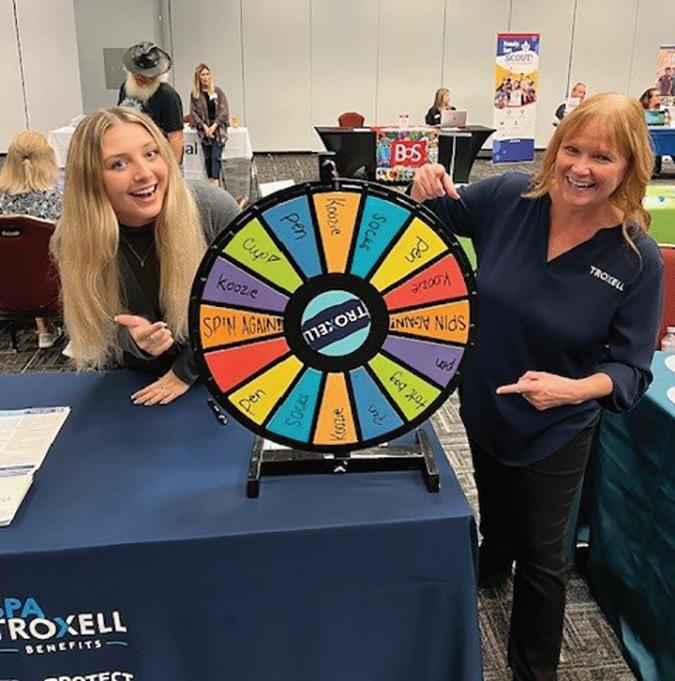
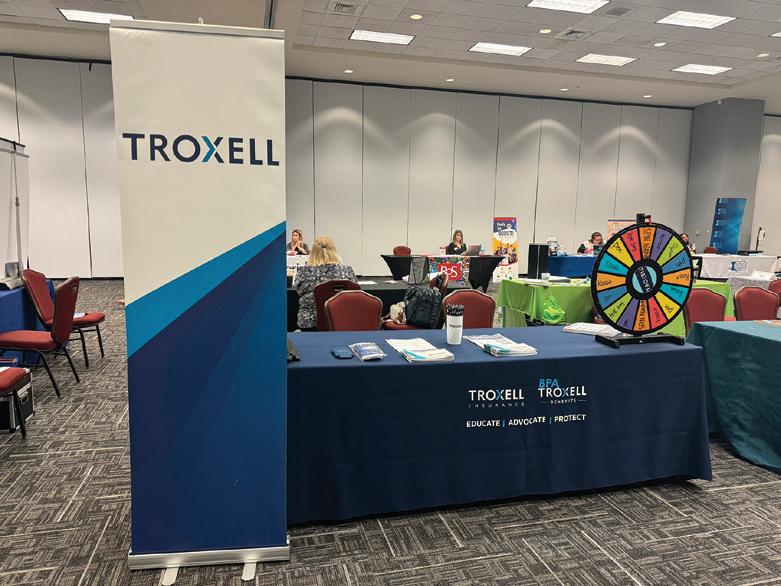
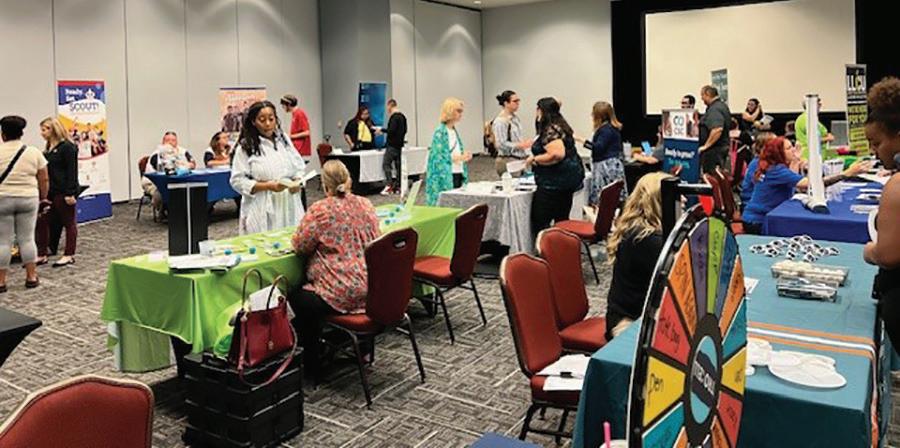



Arlington/Roe, Big I Illinois Gold Partner, welcomed the Board Members for a meet & greet at the home office in Indianapolis in September. CEO, Phil Lackman, and Executive Committee members met with the Production Leaders and management team.
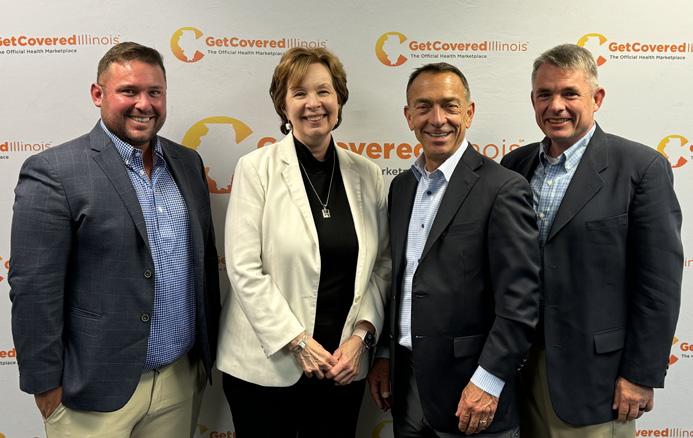

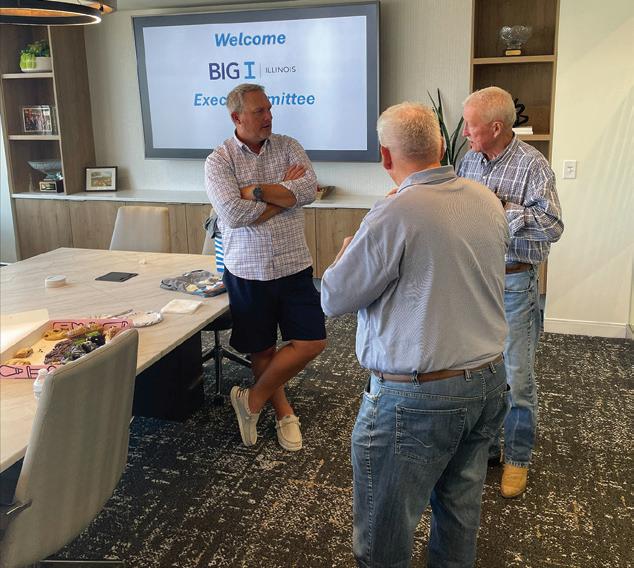
Big I Illinois staff members Evan Manning, Phil Lackman, and Brett Gerger met with Ann Gillespie, Acting Director of the Illinois Department of Insurance, in September.
Big I Illinois staff members Phil Lackman, Jennifer Jacobs, Brett Gerger, and Rachel Romines attended the Big “I” Fall Leadership Conference in Indianapolis in September. Jennifer and Brett attended the Education Convocation with Jennifer facilitating a session on talent recruitment and Brett accepting the Excellence in Insurance Award.
Phil attended Big “I” board meetings and, along with Executive Committee members, were recognized for 125 years of service.
Rachel and Jennifer attended the Young Agents Leadership with members of the Illinois Young Agents Committee.
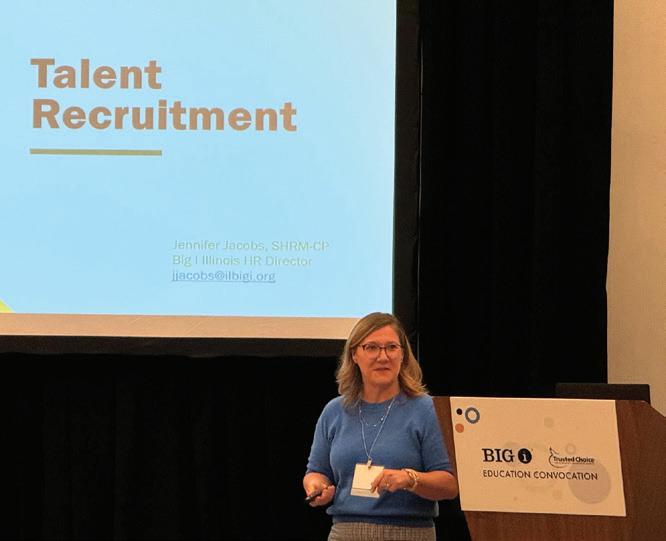

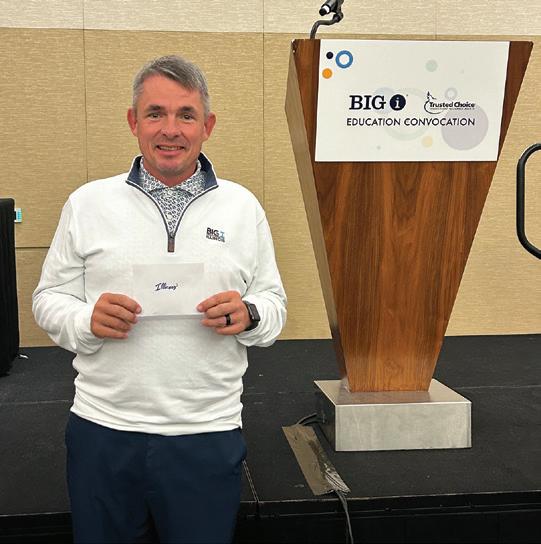

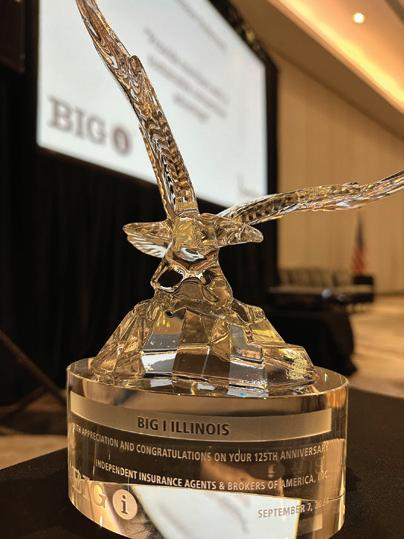
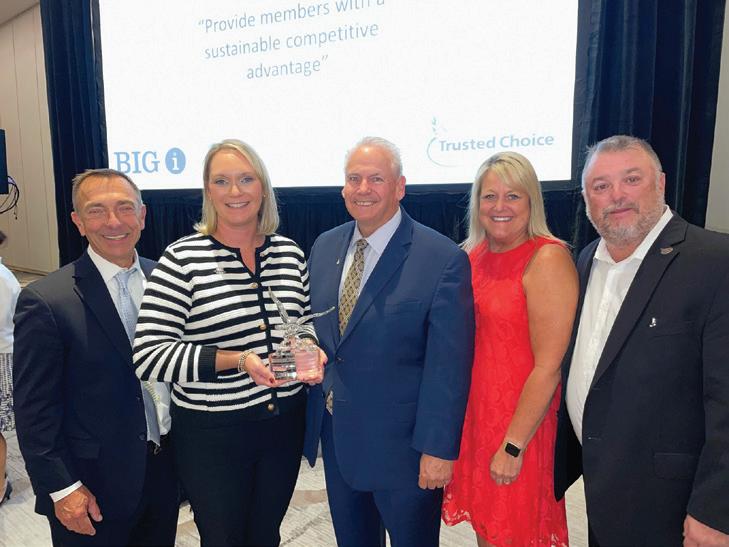

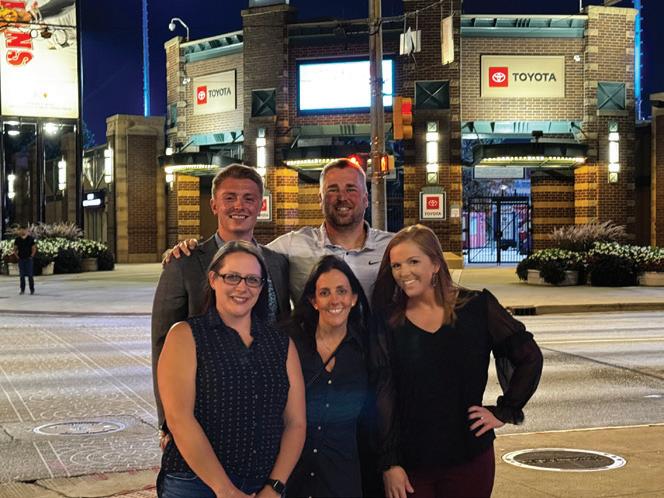

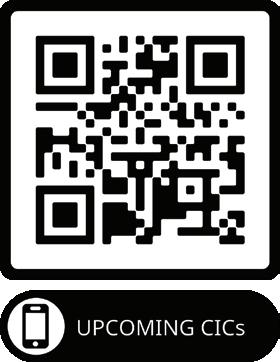



24. Come join our team! Madison Mutual has an opening for a licensed professional insurance agent in our Midwest Preferred Insurance Services office located in Collinsville, IL. The individual must currently hold an insurance producer’s license and have 3+ years of insurance agency experience. Visit the MMIC website Careers page for additional information: madisonmutual.com/careers. Also, explore our social media pages to see for yourself why MMIC is a great place to work!
Send your salary requirements and resume to: careers@madisonmutual.com
25. Small Agency for sale, including AMS360 management system, website, six carriers, VOIP phone system including a complete crm for insurance agents from Bridge, an Orange Partner with Vertafore. Ideal for an insurance professional expecting a fast start to build with everything in place.
For more information, contact Tami Hubbell, Big I Illinois, at thubbell@ilbigi.org.
23. Are you looking for an exit strategy while still continuing to produce for a few years or are you ready to sell now? Paczolt Insurance would like to talk with you! We are an independent agency dating back to the 1970s that is located in the western suburbs. Our focus is on mid-to-small commercial accounts and personal lines.

Our companies include EMC, Badger Mutual, Safeco, Progressive, and Travelers. We have the flexibility and capital to get a deal done. Contact:
Susan Troppito Paczolt Insurance susan@piaigroup.com (708) 215-5202
13. We are a 100 year old Northbrook agency looking to discuss any mutually beneficial opportunity. Our producers, mergers, clusters and agency purchases receive 50% commissions on new and renewal business without any expenses. We can provide: office space, phones, agency management system, service renewals and changes. The companies we represent are: Badger Mutual, Employers Mutual, General Casualty, Guide One, Hartford, Kemper, Progressive, Rockford Mutual, Safeco, State Auto, Travelers and Met Life. Contact:
Nancy Solomon Martini, Miller & Schloss, Inc. (847) 291-1313
Ron@martini-miller.com
20. Since 2004, Central Illinois Agents Group LLC has been providing independent agents with a variety of markets with contingency opportunities. Agents have availability to several markets that they may not be able to sustain or maintain on their own. We have markets for personal, commercial, agricultural and crop insurance lines. Let us help you get to the next level.
Visit www.ciagonline.com for contact information.
02. Forest Park/Oak Park agency for over 60 years, will meet your needs by providing space, markets, marketing & sales support, automation, merging with or purchasing your agency. Perpetuation/ Succession Plans, Buy-Sell Agreements also available. We have experienced, educated and dedicated staff for you and your clients. Have access to our numerous companies, office services and many other resources. Retain ownership in your book with contingency. Please look closely at us- we are an agency you want to do business with! We’ve done it before, we know how- we make it easy! Visit our website at forestagency.com/agents.html, or call for a confidential discussion and a list of Agency benefits.
Dan Browne will provide an agency evaluation/appraisal at little cost to you. Please call:
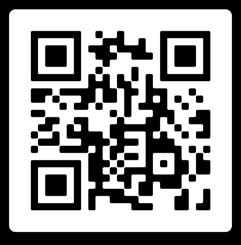
Dan Browne or Cathy Hall
Forest Insurance (708) 383-9000 www.forestinsured.com/mergers-acquisitions
